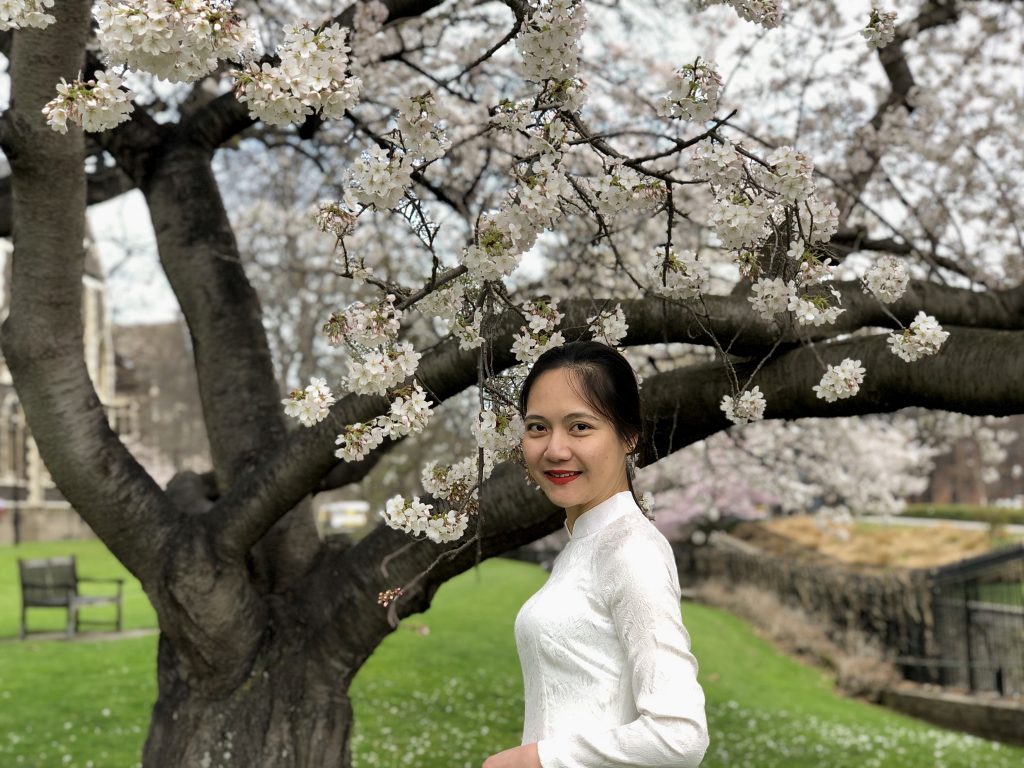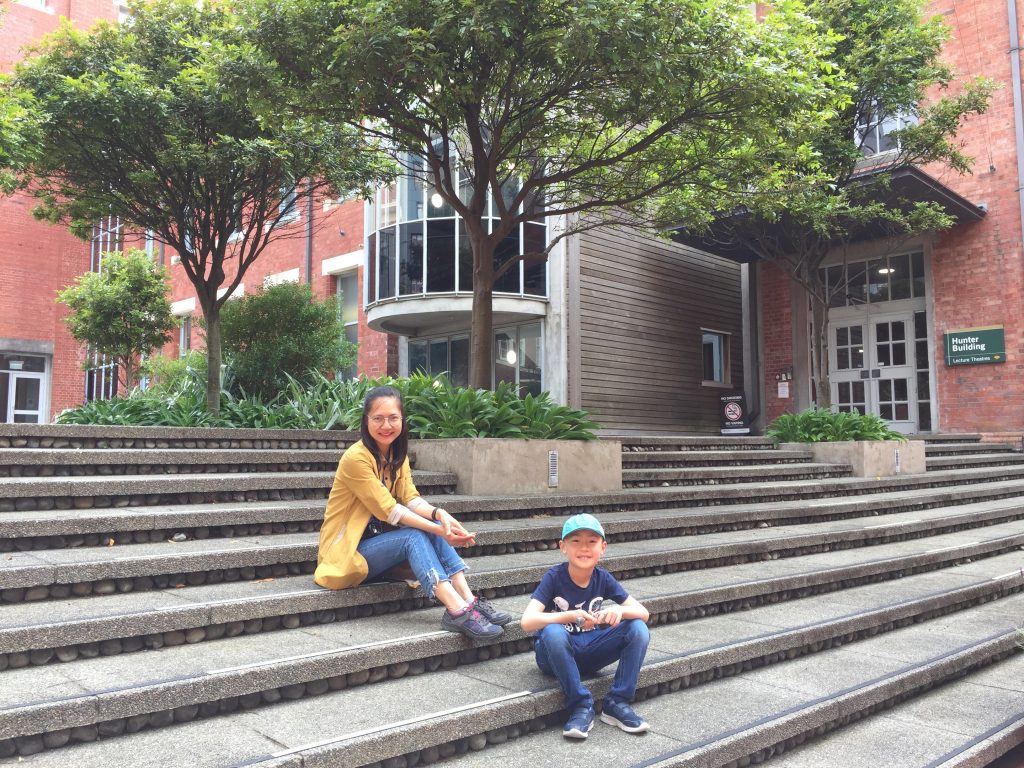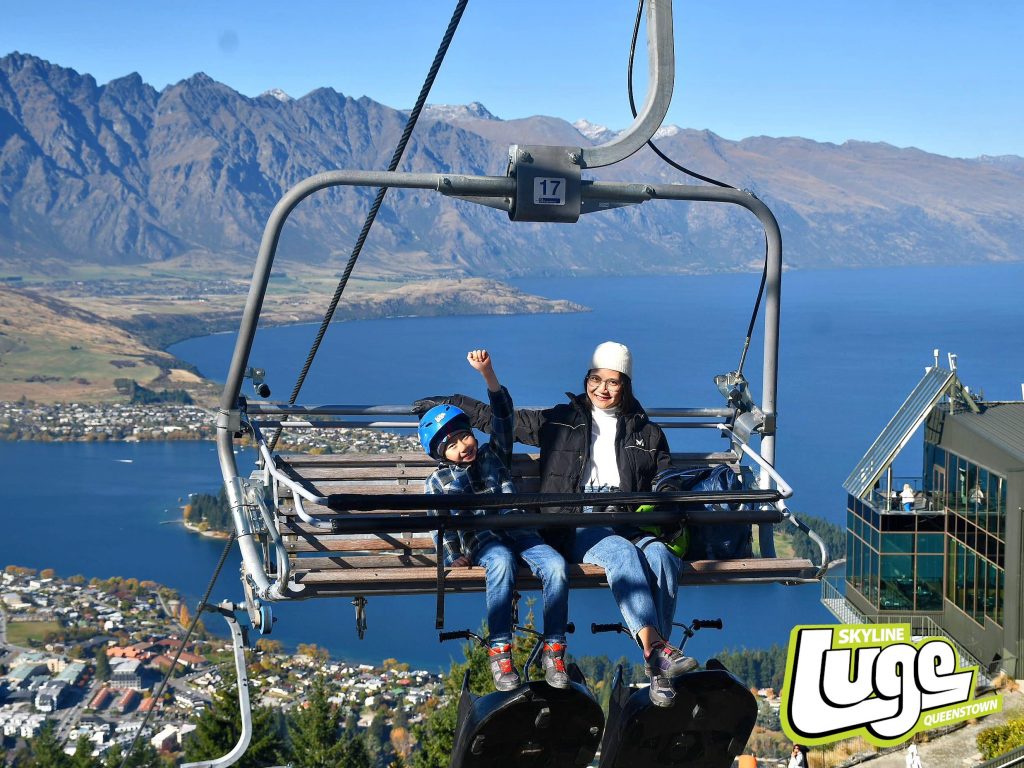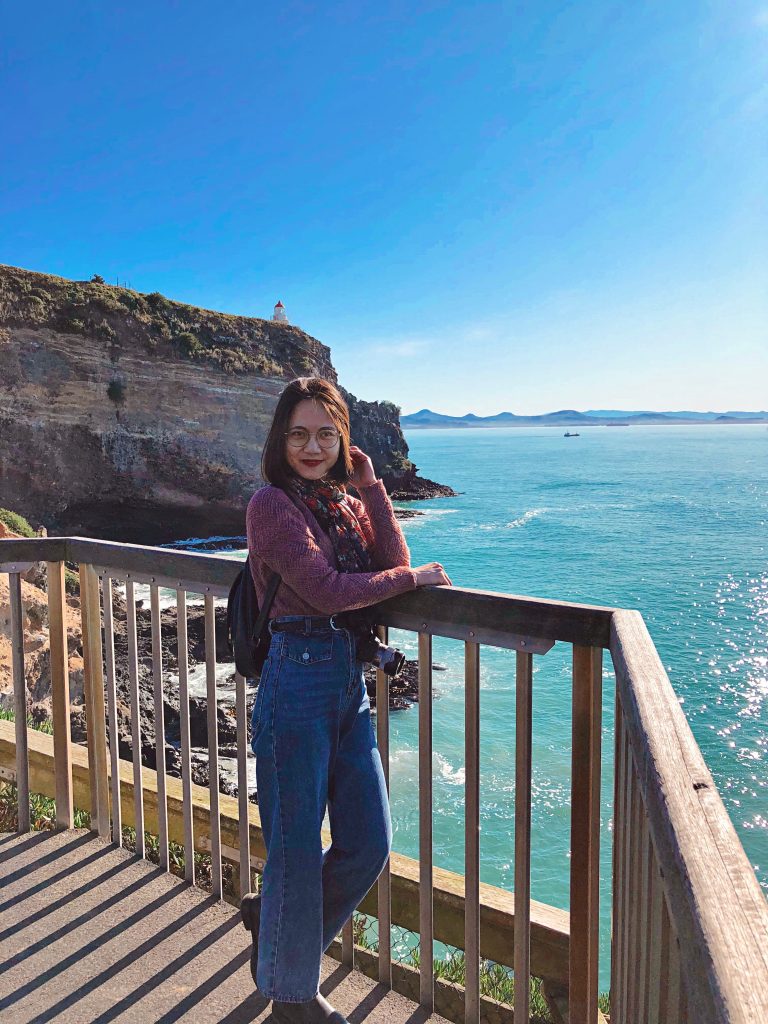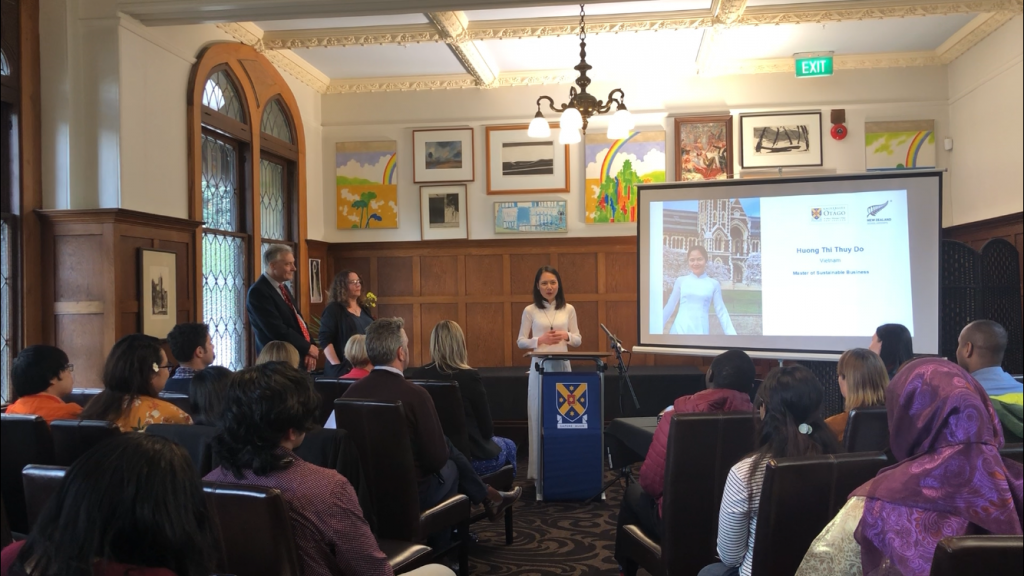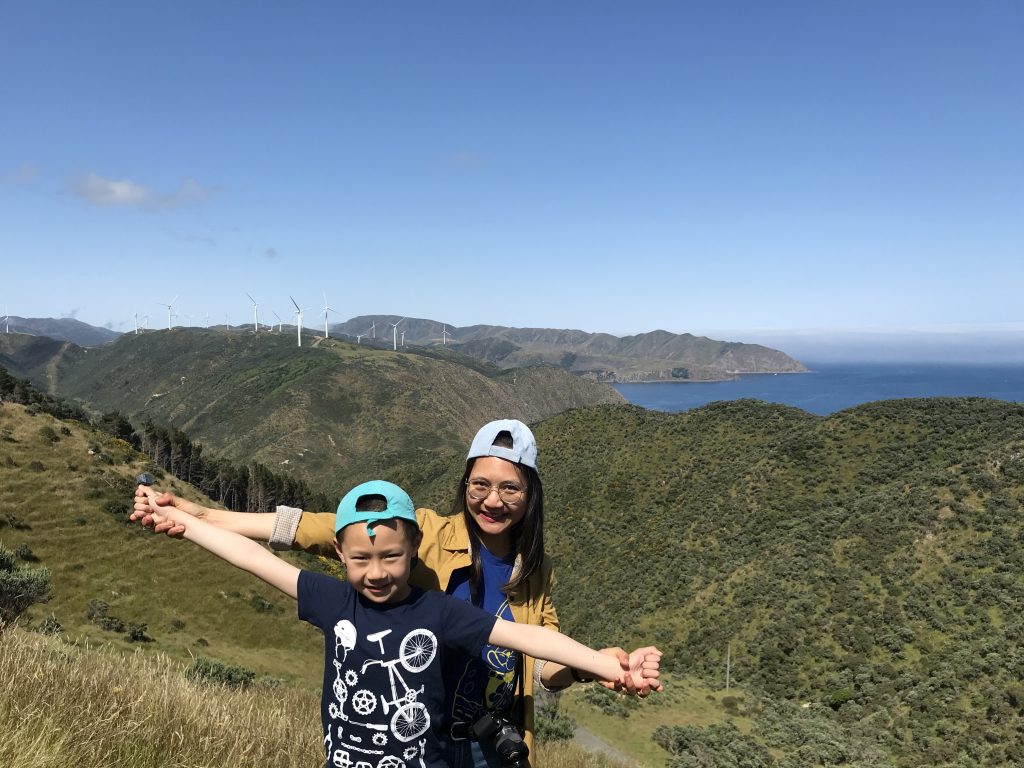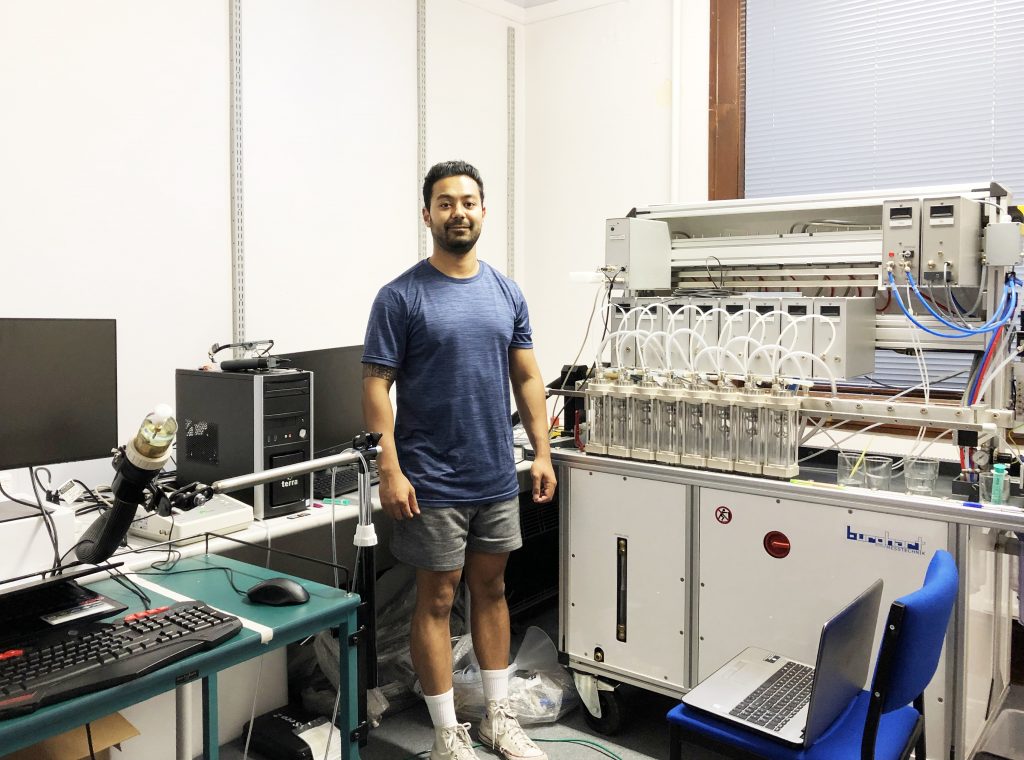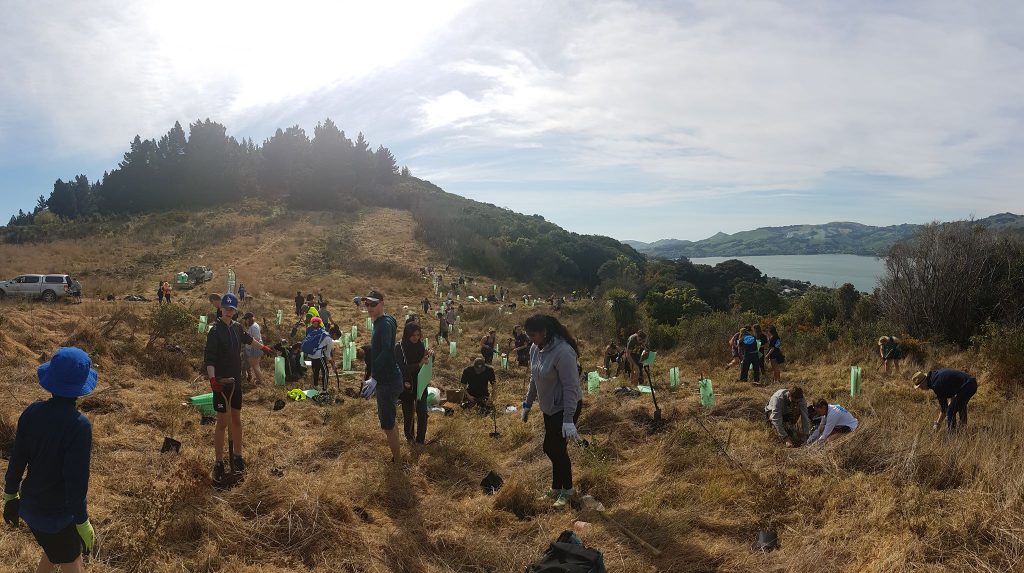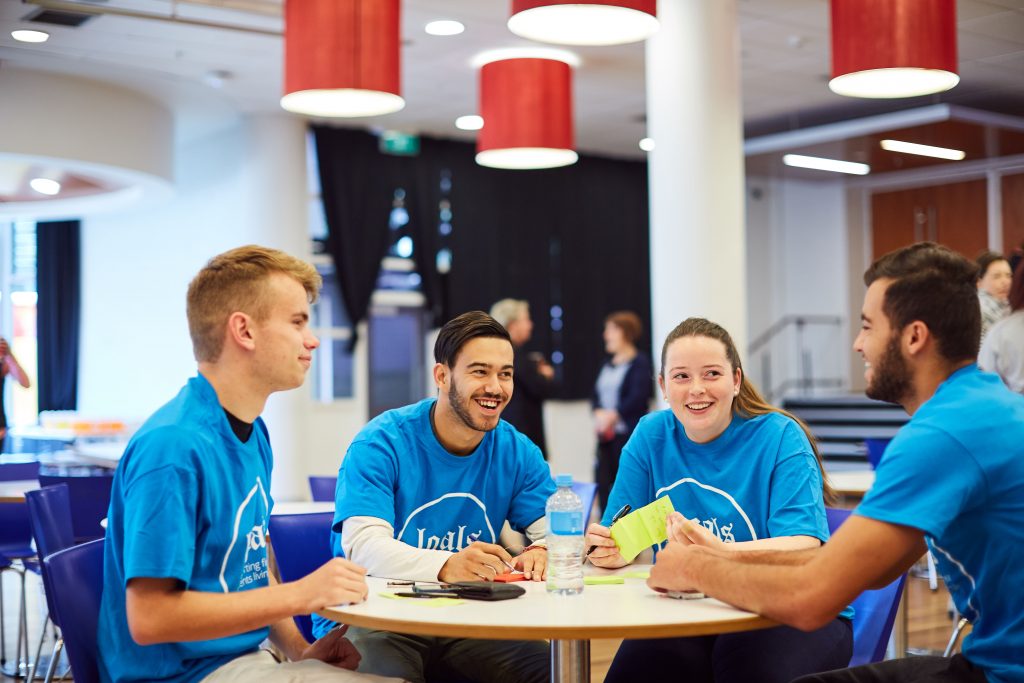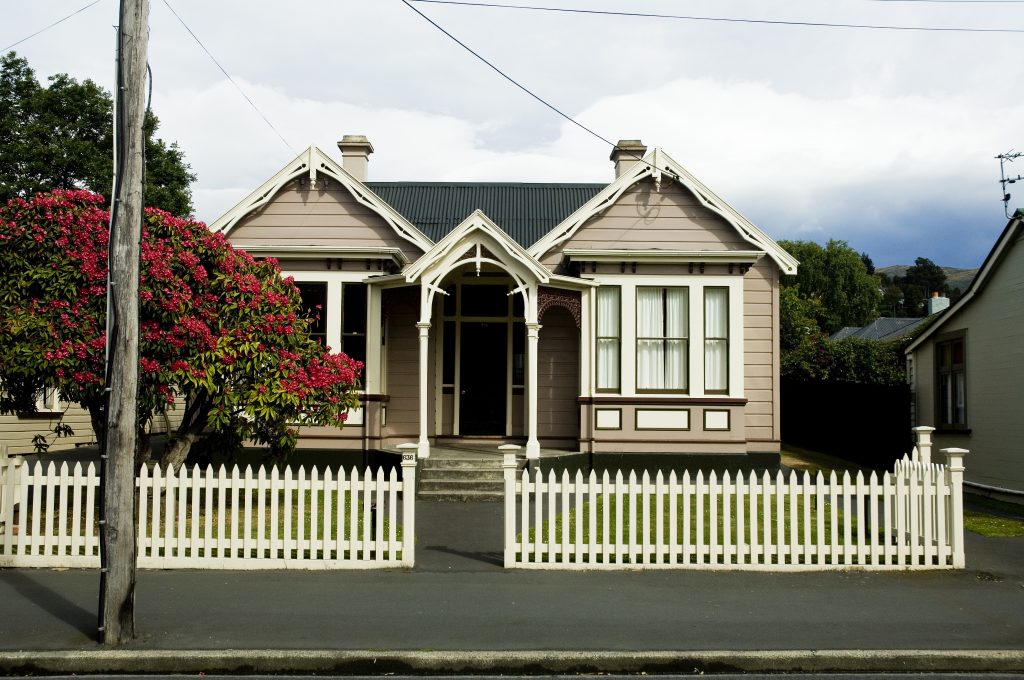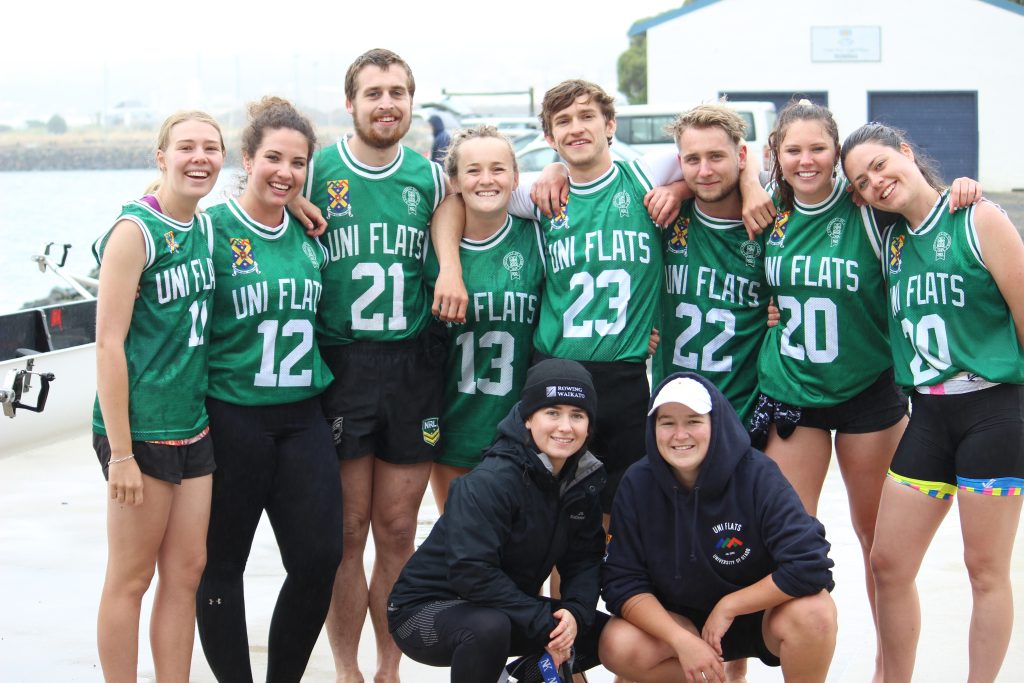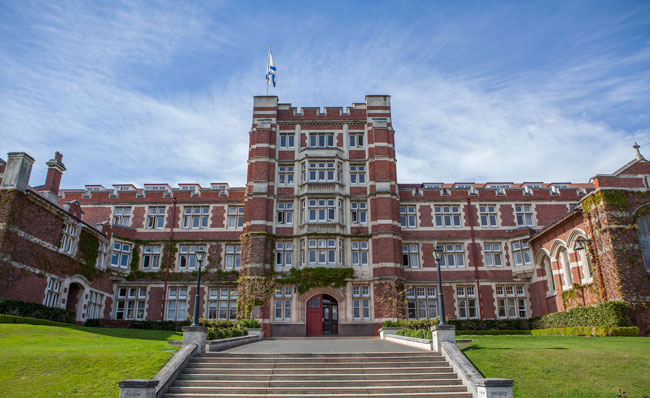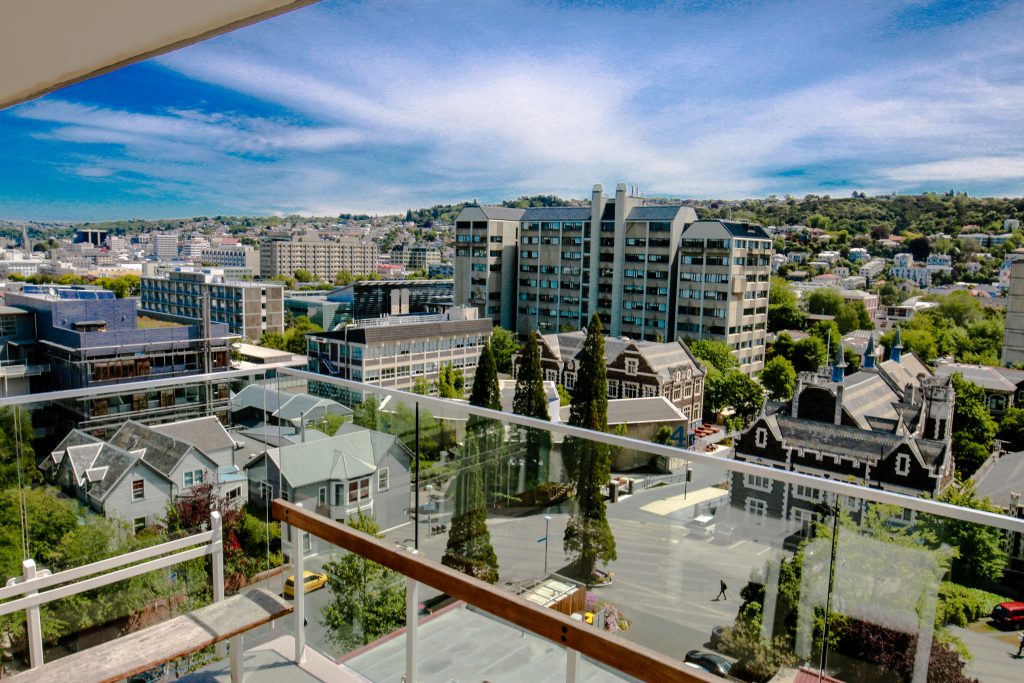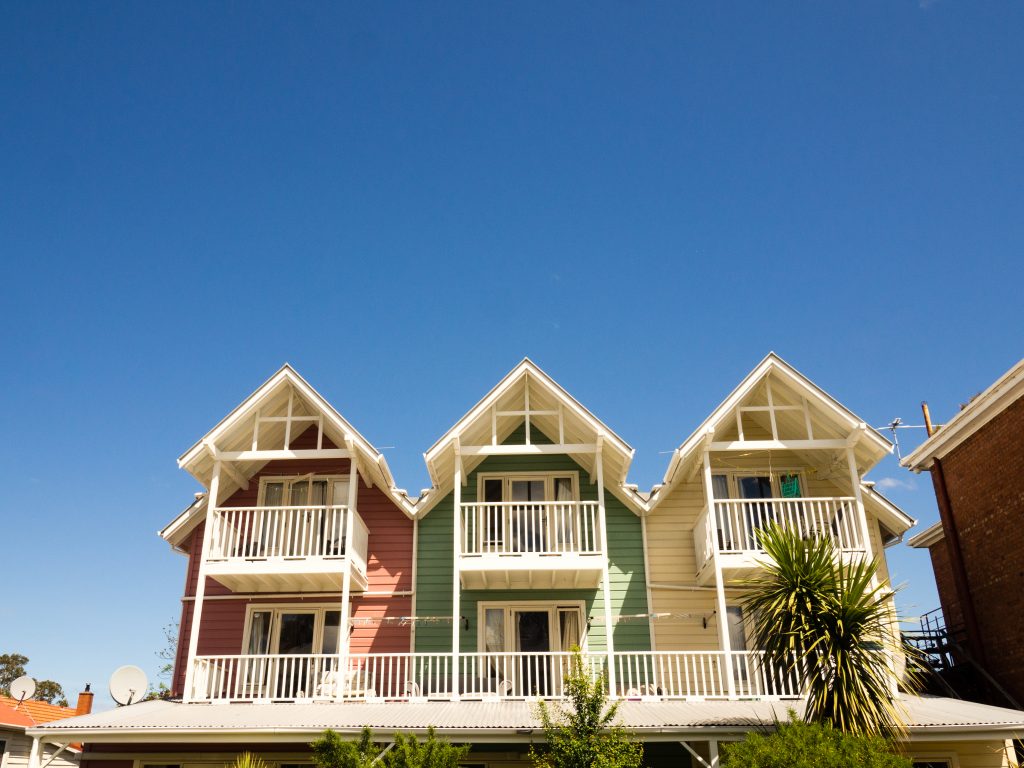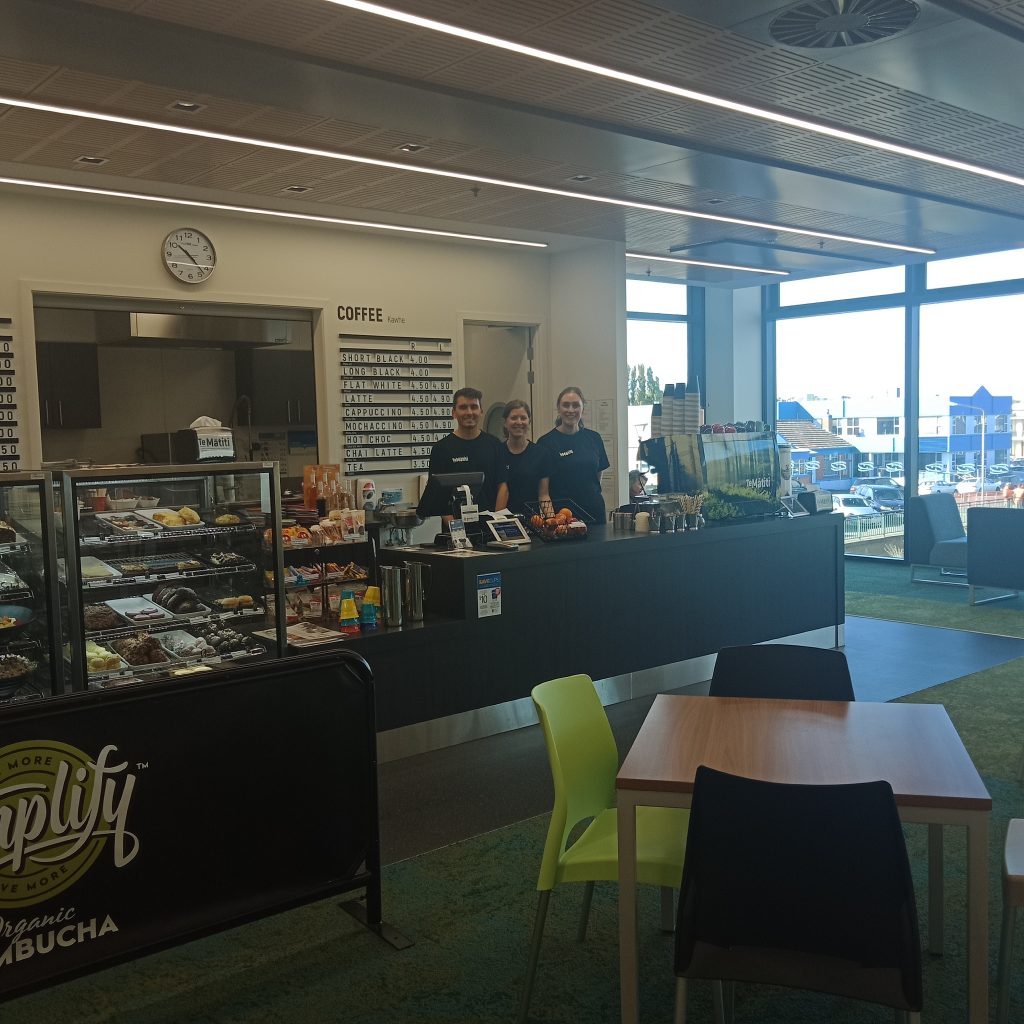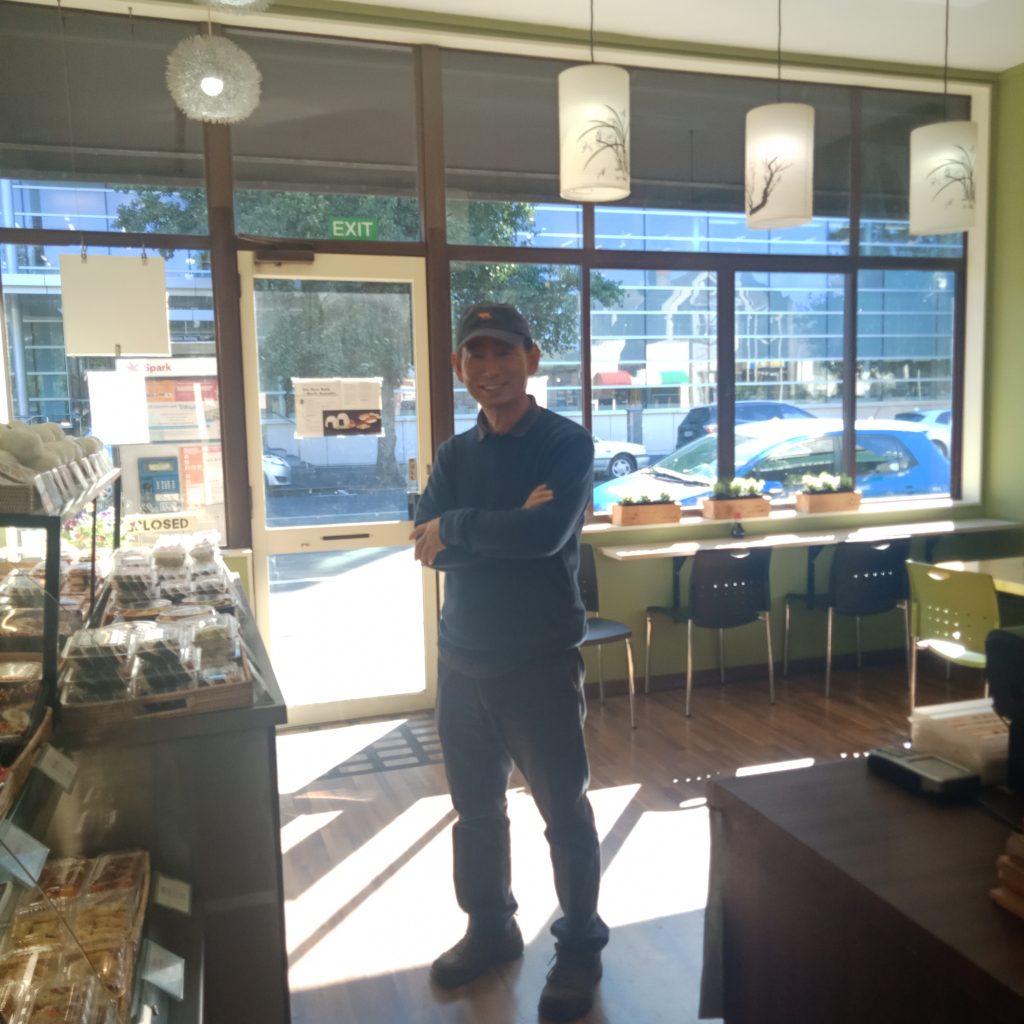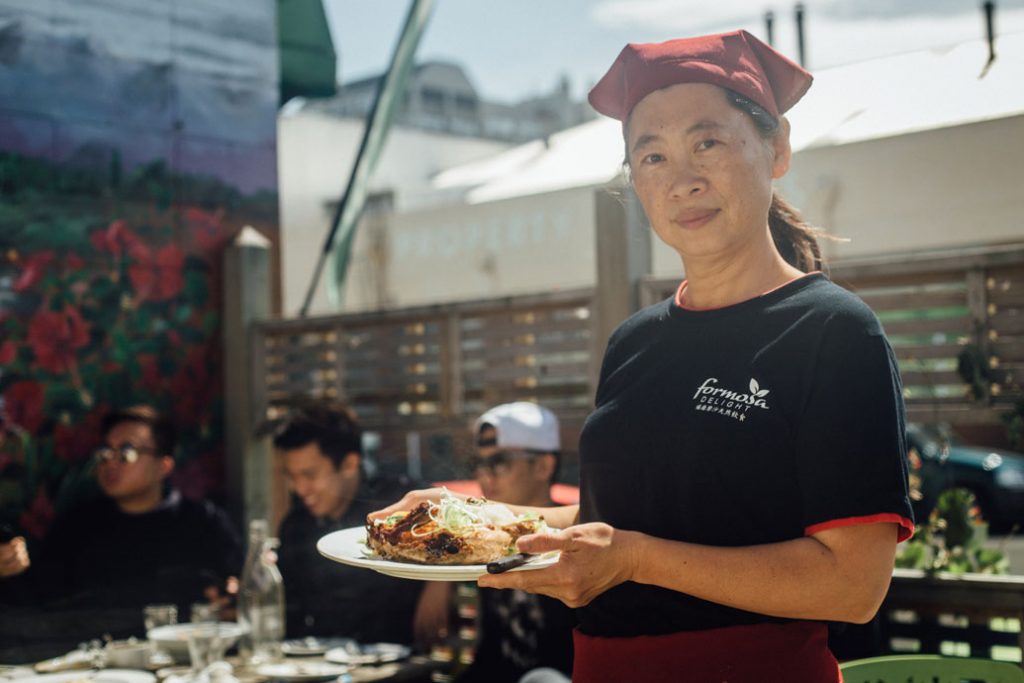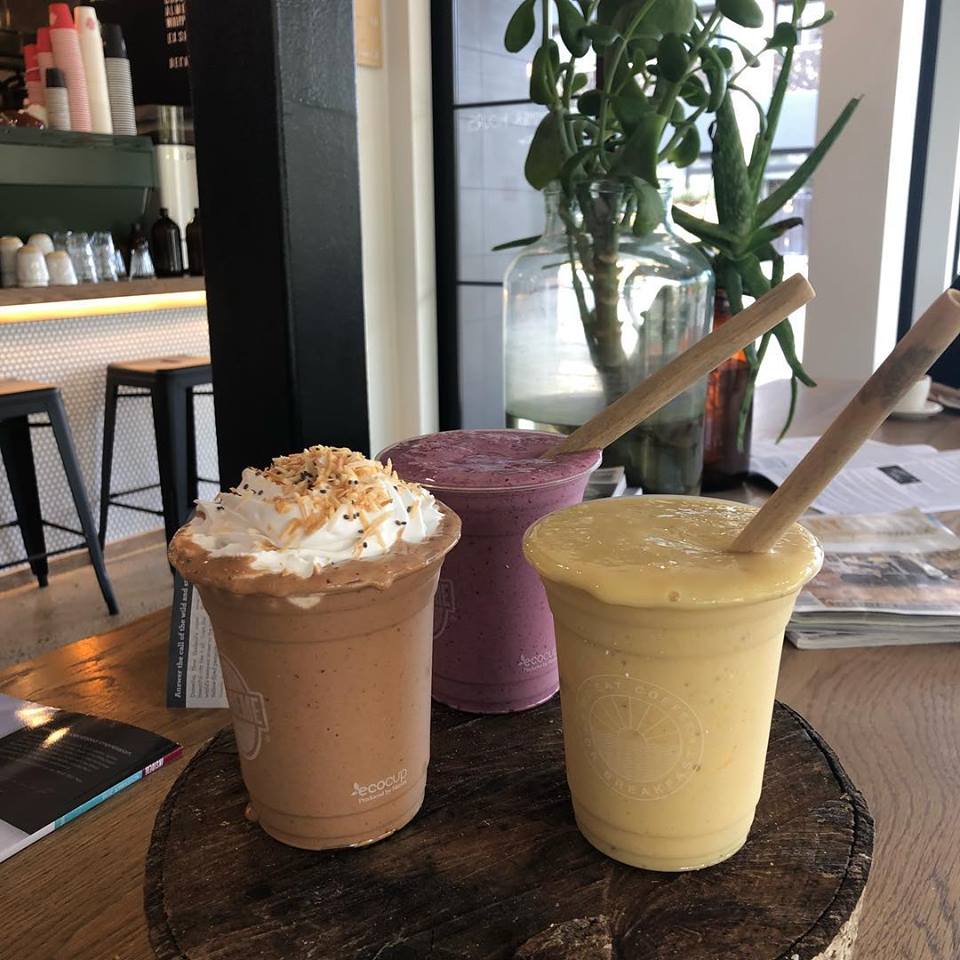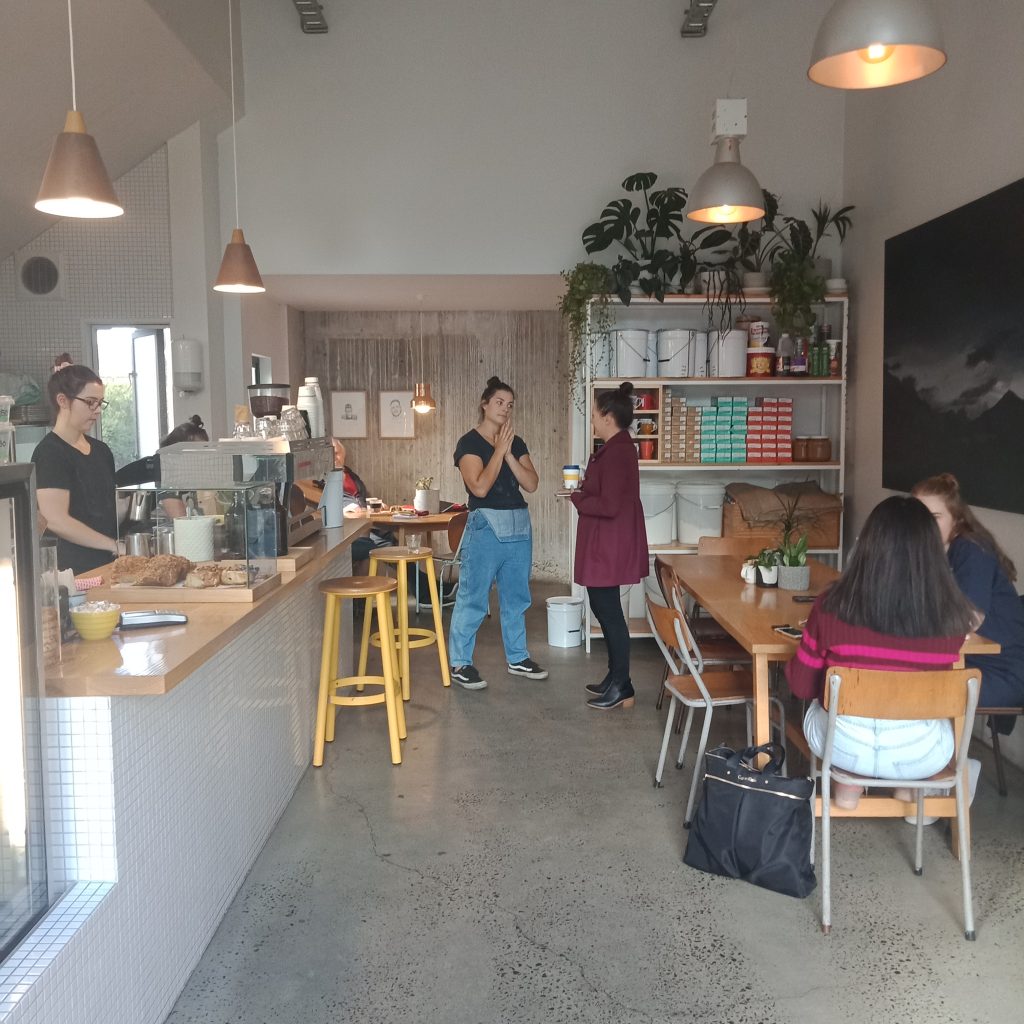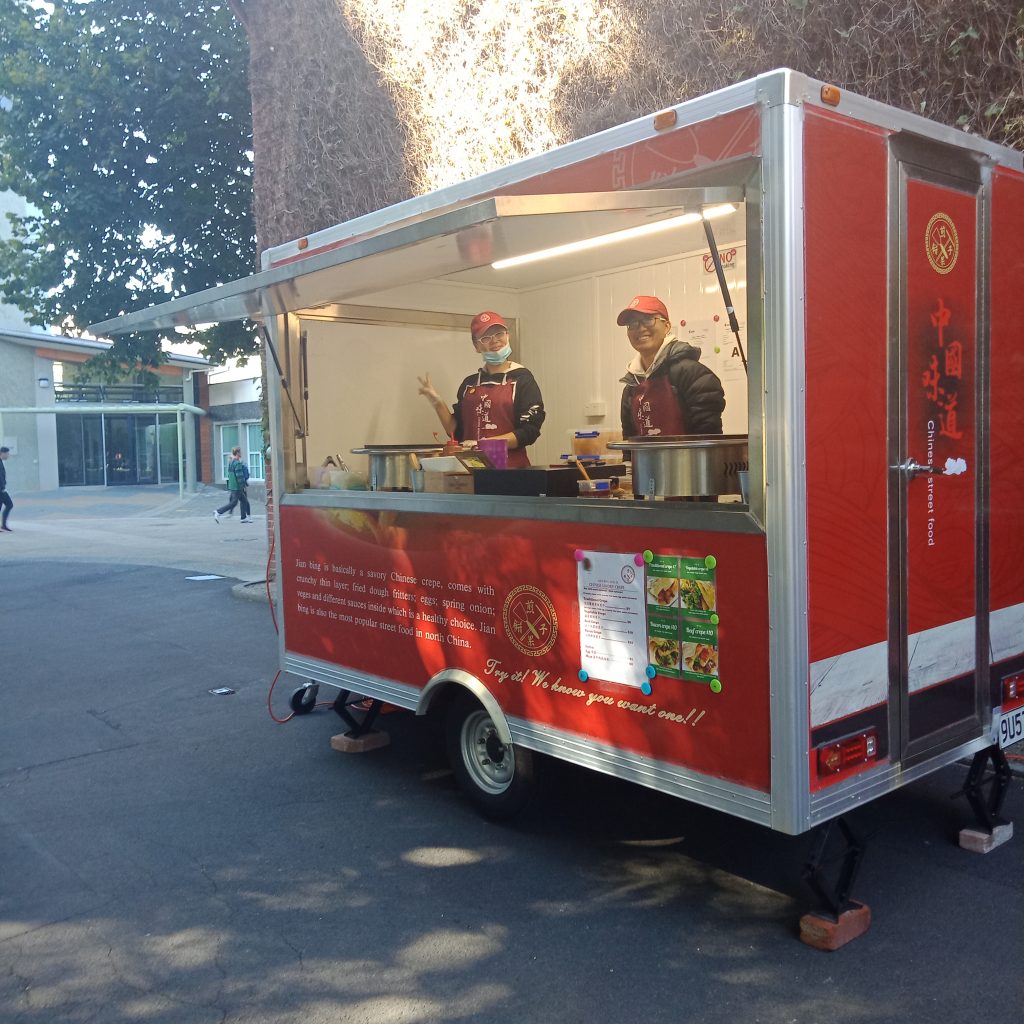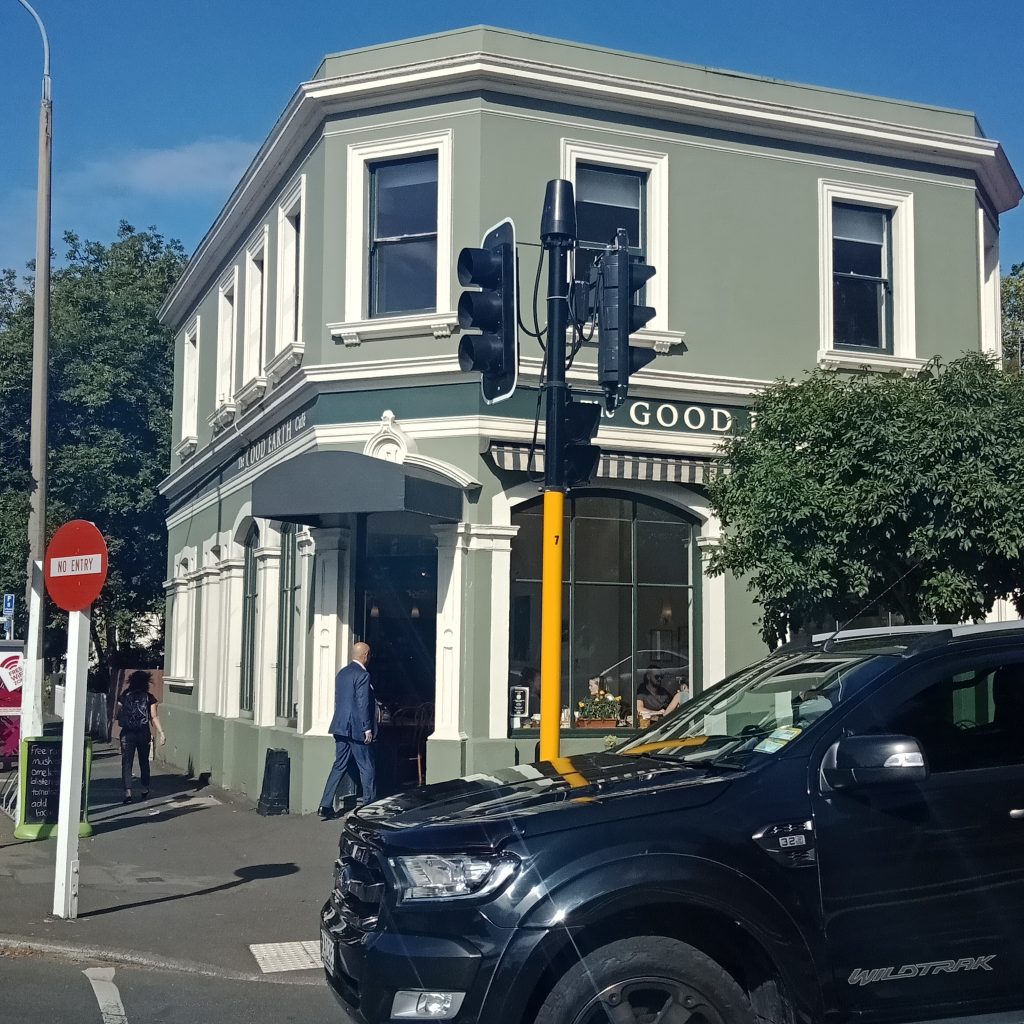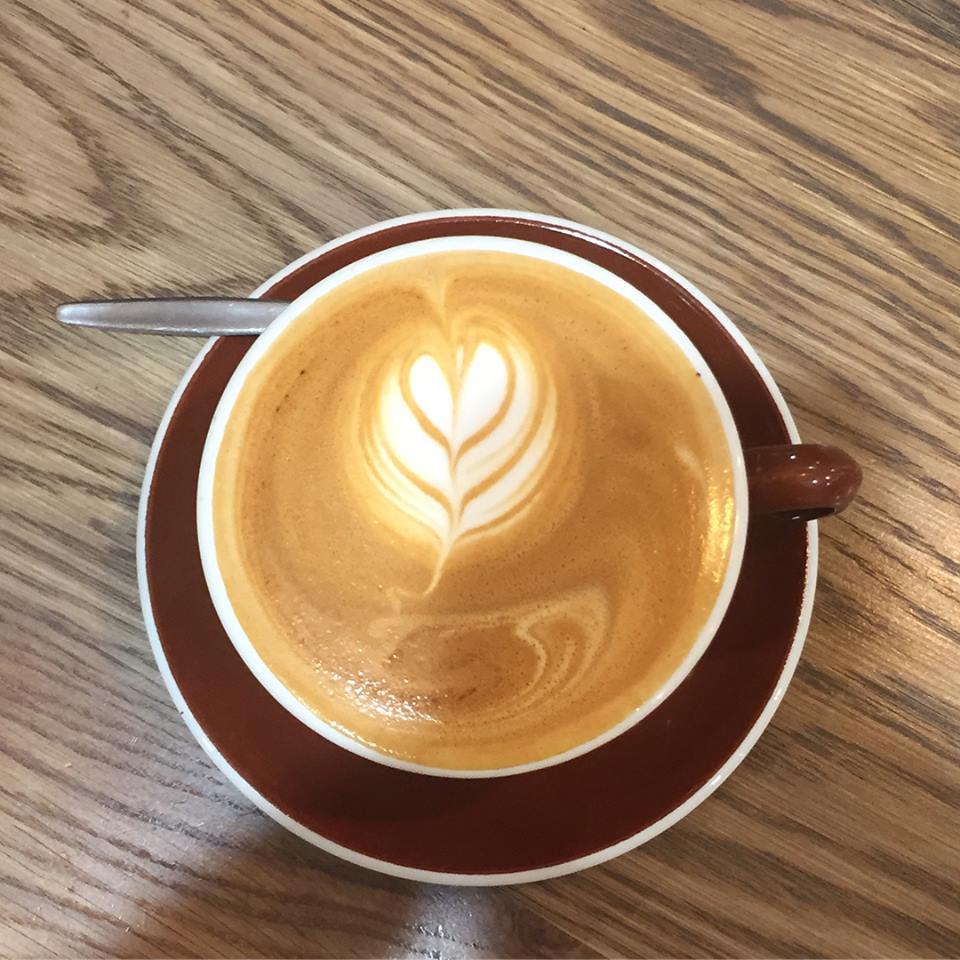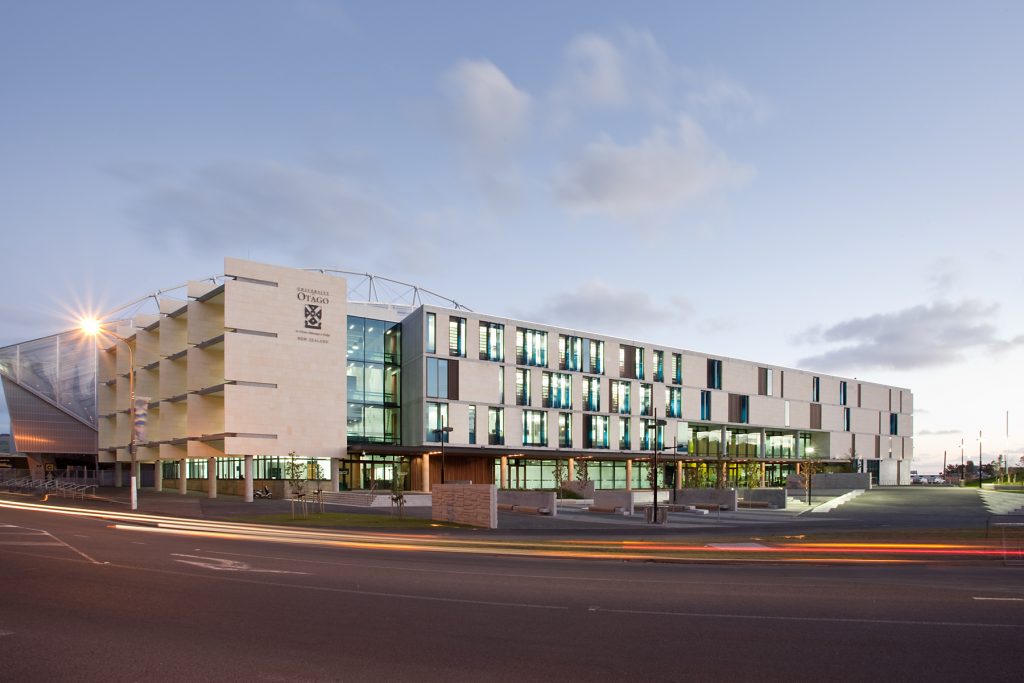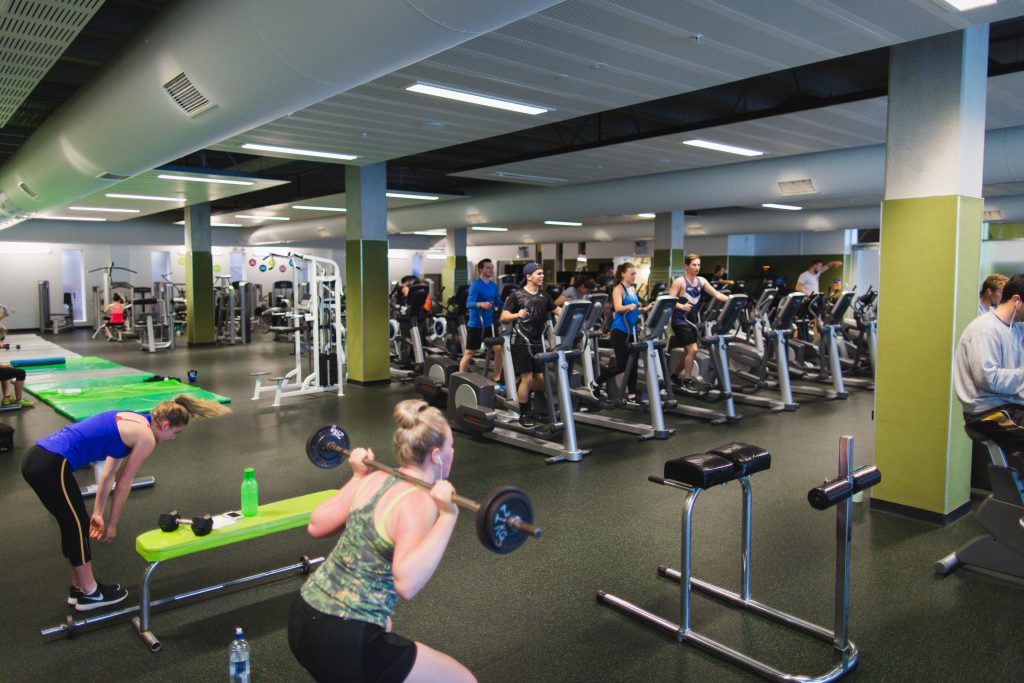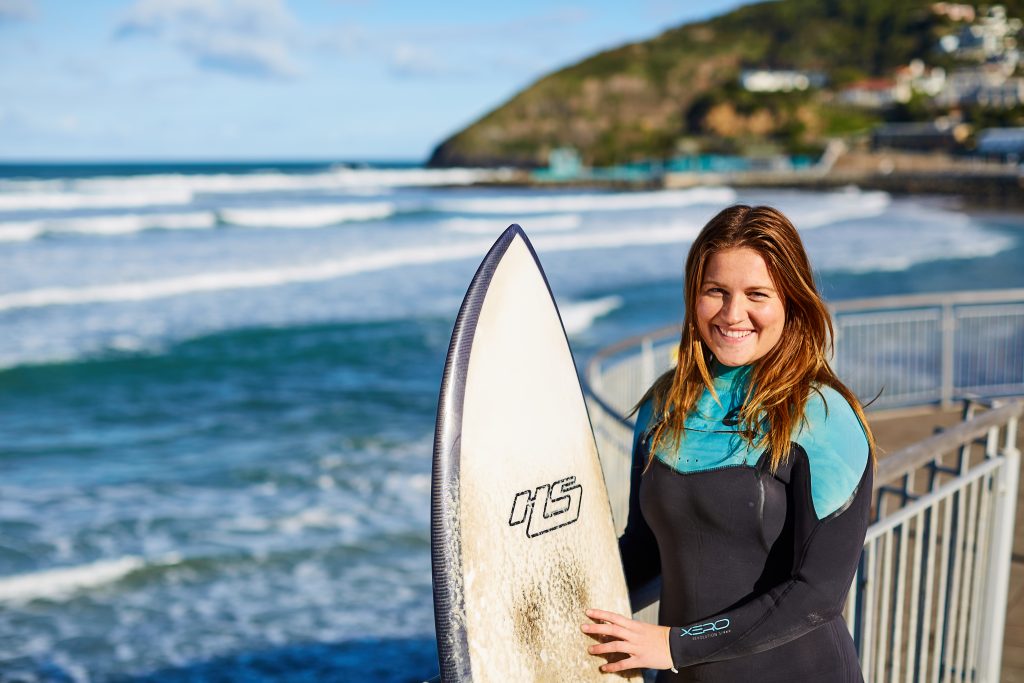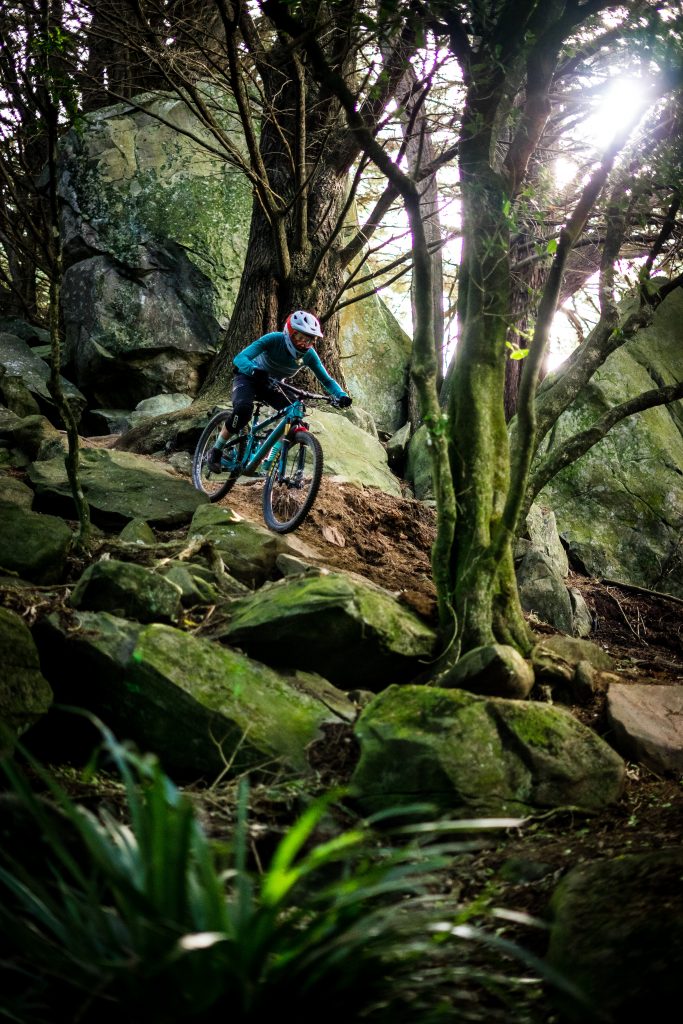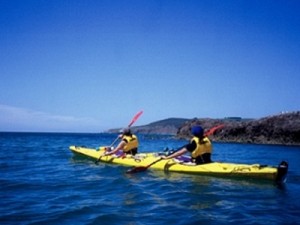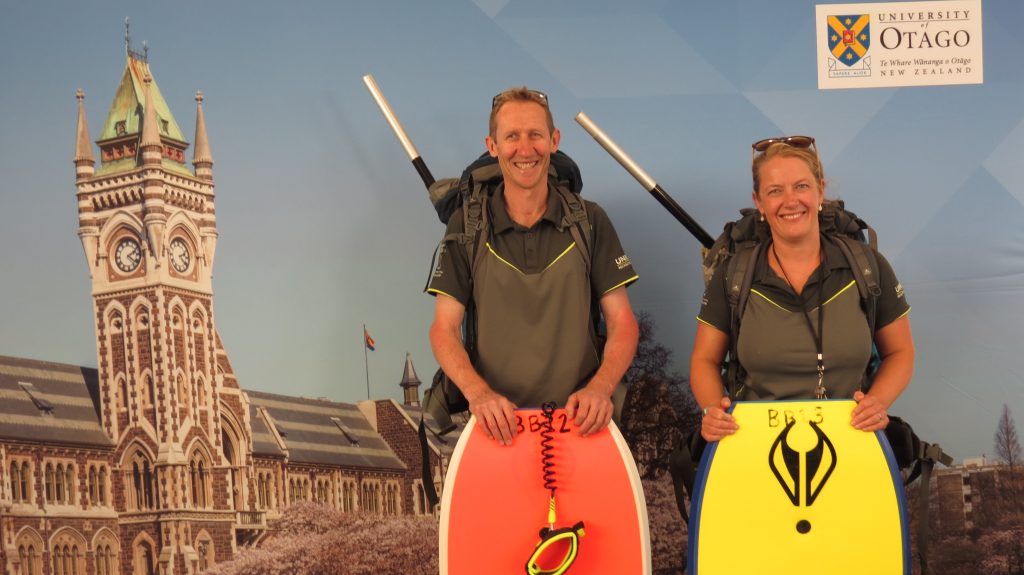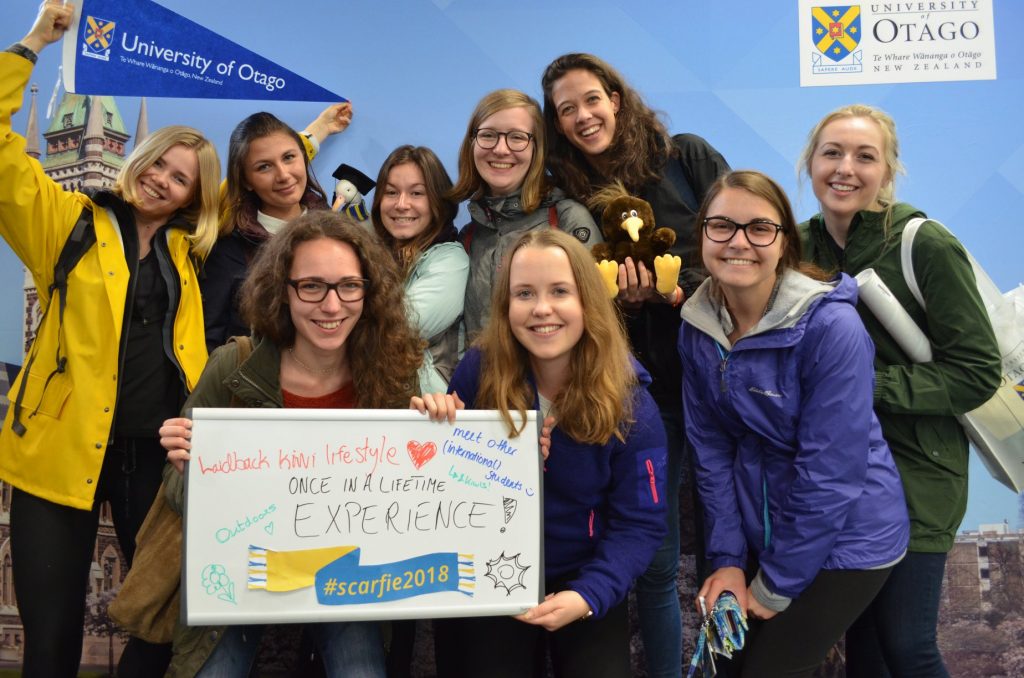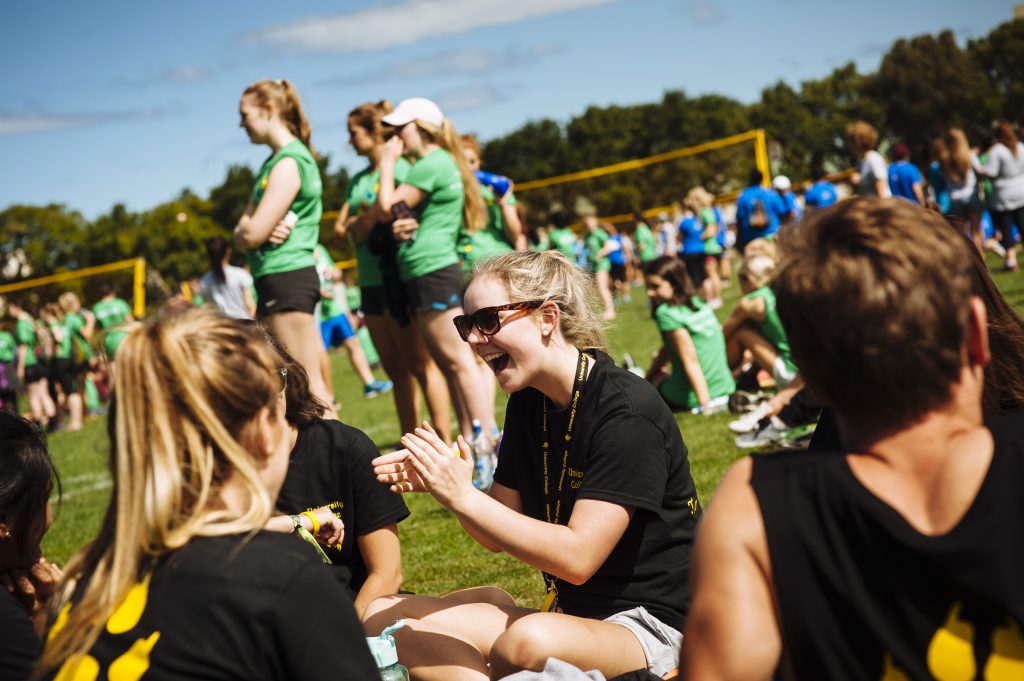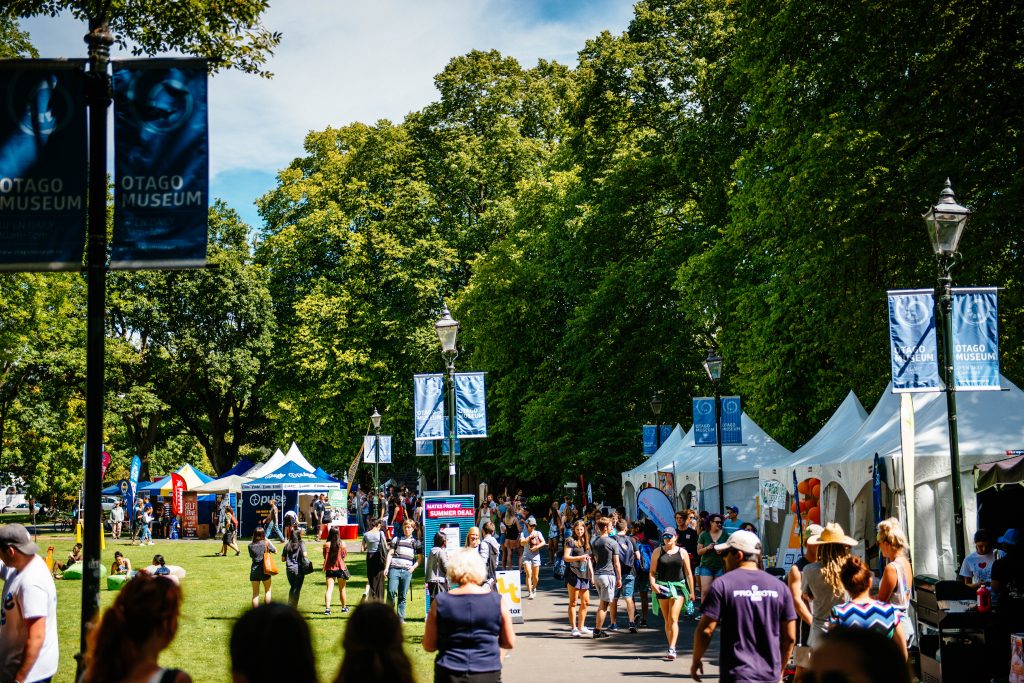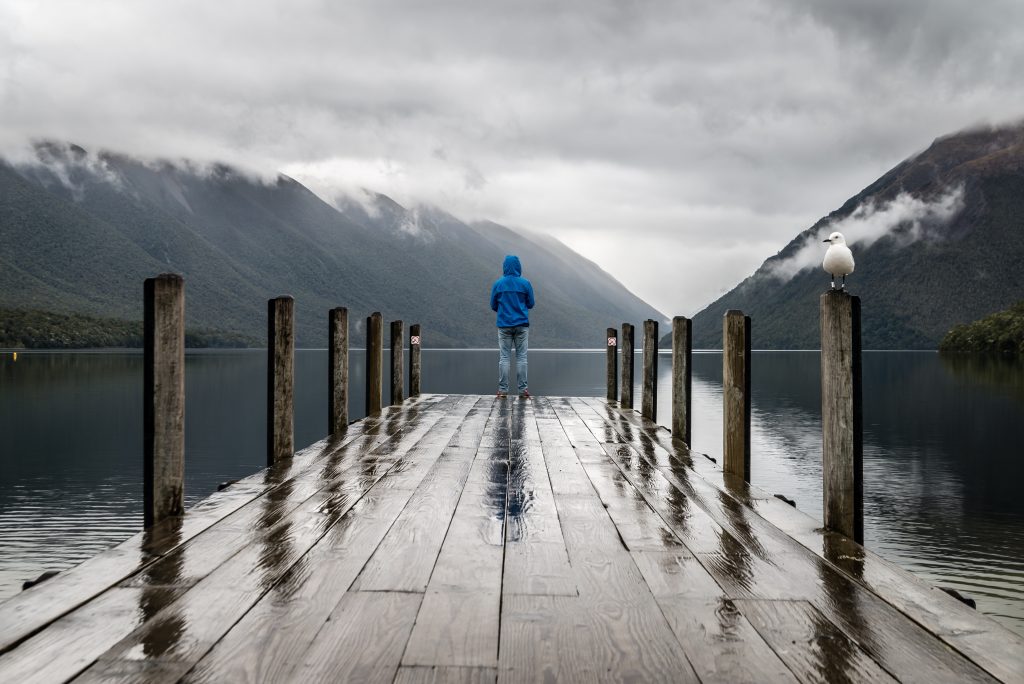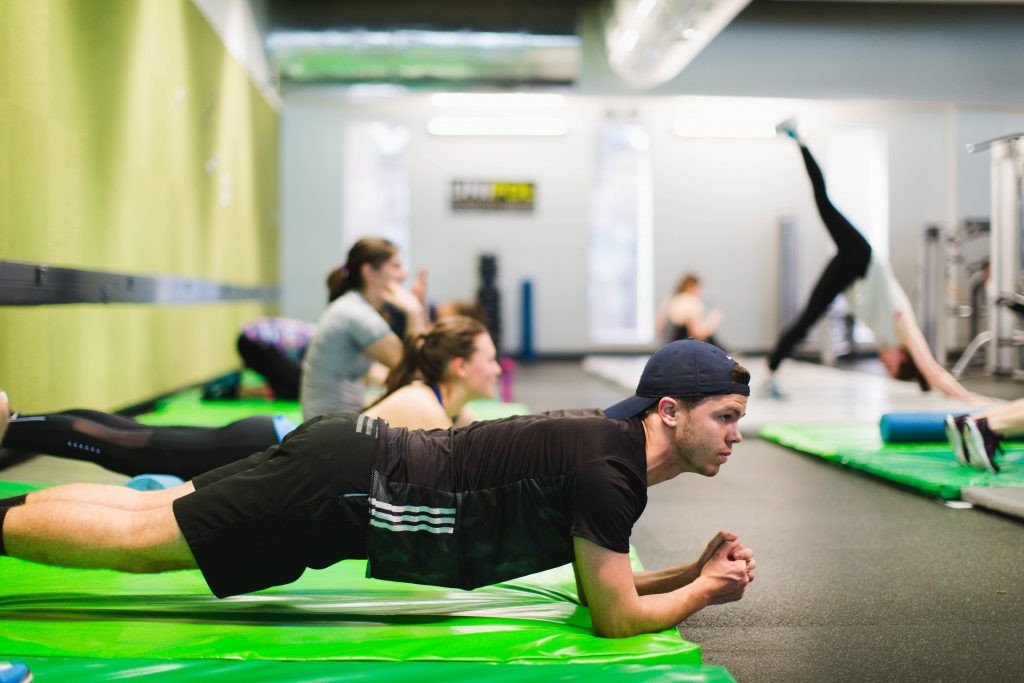Finding resilience, educational achievement and a sense of belonging amidst the COVID-19 pandemic.
NZ Scholarship recipient Huong Do (Vietnam) graduated with a Master of Sustainable Business (MSusBus) with Distinction from the University of Otago earlier this year. This is an achievement in itself, but add parenting; living far from home; working remotely; English as a second language and the COVID-19 pandemic. One of these ‘extra’ factors could have been enough to alter the course that Huong Do was on, but she continued on her journey and along the way discovered a sense of belonging, a resilience she did not know she had and educational and life skills that will improve not only her own life, but those that she comes in contact with in the future.
Question 1: Where did you first hear about the University of Otago? Why did you choose Otago over other universities in New Zealand and/ or the rest of the world?
On an autumn day in August 2018, when searching in vain for a course that was most relevant to my professional career as a Corporate Social Responsibility Specialist, I unexpectedly found the line “Master of Sustainable Business at the University of Otago, New Zealand” – this was the first-time I had heard of the University of Otago. I chose the University of Otago over other universities and the rest of the world because they suited my educational needs the most and I was very interested in the course offered. I also declined one offer from the University of Waikato (my second preference for NZ Government Scholarship) and the University of Auckland (for ADB-Japan Scholarship Program). I had a feeling of “belonging” when I read about Otago and the selected course’s description was exactly what I had been looking for.
Question 2: How long did you study at Otago? Did anything about life at Otago surprise you?
I spent 13 months completing the MSusBus at the University of Otago from Feb 2020 to the end of Feb 2021. Due to the complexity of the Covid-19 situation however, my stay in Dunedin was extended till mid of May 2021.
Prior to my departure from home, many friends told me that it was going to be extremely challenging with an intensive one-year studying schedule; a remote working position; being a full-time mother and in such a strange city in a land far away from my home country. But I proved myself in overcoming these potential challenges and being open to new experiences. What surprised me most was not the incredible beauty of the city, the food of a western country, the cold weather of the South Island, or the intensiveness of the coursework, but the people. I prepared myself to meet new people with different characteristics, mindsets, and lifestyles. I kept reading about Kiwi’s friendliness and kindness, but it turned out to be beyond my expectations. From my first day at Otago and over the course of my time there I never felt like I was treated as a stranger – I was welcomed and encouraged by both the University and residential communities. I felt happy every time I walked along the street and received greetings from people who I did not know. The kindness of Dunedinites gave me feelings of warmth and acceptance enabling me to feel secure, even when it times were tough.
Question 3: How did you find the learning/teaching environment at Otago? How is it different to what you have experienced at your previous university (either at home or in another country)? What was your experience with your lecturers/ supervisors like? How was your experience with other Otago staff and people (besides your lecturers/ supervisors)?
I found the learning environment at Otago extraordinarily rich and positive. As a post-graduate student engaging with a small number of classmates and lecturers, I had a precious opportunity to observe and gain insights about the learning environment. Firstly, the program is designed and launched in a student-centred manner. The lecturers did not solely lead us – we could participate and even design the way the knowledge was delivered rather than just having to memorise it. It was my great honour to learn from experienced and wonderful lecturers who all promoted the important role of creativity and critical thinking engaging all students in exploring ideas and issues, challenging traditional assumptions and handling complexity. COVID-19 restriction measures meant we couldn’t continue in the classroom but our lecturers and the University in general quickly responded and adopted many new methods to engage and continue with our learning.
I really would like to highlight the resourceful nature of the lecturers at Otago. They kept their minds open, valued diverse kinds of students all with differing ages, professional and cultural backgrounds. Coming from a developing country and using English as a second language meant that in the early days I was very concerned and anxious that I would fall behind. This feeling did not last as my thoughts, opinions and ideas were all respected and encouraged by the lecturers. As a result, I could identify my place in the class and gain the confidence to work on my ideas.
Otago has an exemplary learning and teaching environment. Academic and applied/ practical knowledge, skills, motivation, and the mental health of students were all positively taken care of.
Aside from my lecturers and supervisor, my main engagement with other Otago people was mainly around International Student Advisors, Ask Otago, and cafeteria staff. Typing these lines reminds me of all the grateful memories I have. During the hard time of isolation due to COVID-19 restrictions, the cold of winter or the pressure during the thesis writing period, I was not far from the warmth of emails, smiles and greetings from them all.
Question 4: While studying at Otago, what were other activities that you engaged/ experienced (Part time job? Travelling? Volunteering? Tutoring? Etc). Please share with us any thoughts/observations that you gained from these experiences.
2020 was a special year for every person living, working, and studying in New Zealand. Due to the impacts of the COVID-19 pandemic many people could not fulfil goals and objectives. But thanks to the safe and effective measures put in place to control the situation in New Zealand, I felt still luckier than many students and citizens in other countries. While studying at Otago, other than spending most of my time completing my studies I was still able to handle a job in Vietnam, travel around, learn new knowledge and skills as well as engage in some light volunteer work.
As a student enrolling in the Master of Sustainable Business I always found the relevant opportunities to enhance and apply my knowledge of sustainable development. By maintaining my job as a Senior Compliance/ Sustainability Officer I could create links between the theories, frameworks, models, methods, case studies and my real work with my employer . At the same time, I could turn my occupational experiences into valuable input and examples for the classroom.
Regarding travel, trips end but memories stay forever. Although I could not travel alot due to the limitation of time and effects of the pandemic, I was inspired by the New Zealand tourism industry. Among a variety of destinations, Queenstown and Auckland were my son’s and my favourite places. While Queenstown reminded me of a small but famous tourist oriented town in my home country, the vibrant and crowded Auckland attracted my son. No matter how far and long our trips were, we both felt the beauty of NZ’s landscape and the warmth and friendliness from the people we met.
Over summer I had opportunities to attend cooking and bread making classes, as well as learning how to compost in our flat/ house/ office with the ‘Summer at Otago’ program. Volunteer work at the Community Garden also brought me new experiences. I was grateful to take part in these programs and activities as they all related to my interests. They not only made my stay in Otago more memorable but also equipped me with insights and knowledge which I can apply when I returned home.
Question 5: Overall, how did you find the ‘culture’ of the students, staff, and people that work at the University of Otago?
From my perspective, everyone studying, working, and serving at the University of Otago successfully shapes its uniquely diverse and consistent culture. I was impressed reading about the University’s history and was amazed upon my arrival at the campus on the first day. The atmosphere around the campus was extraordinary – relaxed and comfortable yet the spirit of people was very strong, focused, and positive. As the oldest university in the NZ Otago’s culture was rich with traditional values, but the modern aspects of the University are applied and promoted by students and staff. I read about the University’s four core values, and I observed these values were present in the students and staff I met. The respect, integrity, curiosity, and community values were reflected through the words and actions of the people I encountered, no matter what level of management, where they were from, what they were studying – all were working to contribute to the development and success of the University.
Question 6: What were the standout features of living and studying at Otago?
I personally love Otago as it suits my ideal for living and studying so much. Dunedin is a smaller and less populated city than my home city, it is not as crowded or noisy. It is peaceful yet convenient so a student can focus on studying while at the same time enjoy the beauty of nature and people.
Question 7: Overall, did Otago Uni meet your expectations? Tell us why or why not?
The University of Otago completely met my expectations. The fear of not finding a feeling of “belonging” prior to my arrival well and truly abated during my time here. Although I lived far away from home, the University of Otago and Dunedin became my second home and I felt fulfilled both academically and socially. It was not only about the academic quality, but Otago also widened my graduate employability as I gained knowledge for interpersonal and conceptual skills, strategic planning, and independent judgement. Furthermore, Otago will always stay in my mind for its beauty – magnolia blooms, cherry blossoms, moody clouds and sustaining rain, I felt such pride being in one of the world’s most beautiful campuses. I also appreciated the communication given – even during the tough times of Covid-19, I could see the quick responses, firm decisions, clear and positive communication from the University management and staff. This helped me to better plan, stay strong, and be positive that together we would overcome the hardship.
I still remember at the end of NZAID scholars’ integration week, Associate Professor Vivienne Anderson let us write a letter to ourselves in the near future, to describe our expectations and desires while we were at Otago. When my journey was nearing its end I had the chance to meet her and other scholars, where I received the letter I had written upon the start of my journey. I felt amazed. I had a good performance in my learning, become acquainted with study and the lifestyle of Otago. I also spent precious moments with my companion, teaching him and learning from him at the same time.
When you’re back home:
Question 8: How would you describe the University of Otago to somebody who was thinking of studying as an international student at Otago?
When thinking of studying as an international student at the University of Otago, I am sure that you have searched and read a lot of valuable information posted on the University’s website and other trusted sources. I hope this advice is helpful to you – you can trust what you read and heard about Otago as it is true. Follow your heart as it can lead you to an incredible place. Finally, do not hesitate to challenge yourself at Otago – you will have one of the most wonderful times in your life there.
Question 9: What is the best memory you will take home with you from your time at the University of Otago?
Every moment at Otago is memorable and beautifully captured through my camera and my memory. I also have my companion reminding me of many events that happened during the time we spent at Otago together. However, if it is a must to choose the best memory, I will talk about the Scholarship Completion Ceremony held last October. During 2020 many classes were transferred to an online platform, many events were virtually hosted, and a lot of ceremonies were affected or cancelled due to the outbreak of the COVID-19 pandemic. However, the Completion Ceremony was successfully organised just one day after my very last class of the final semester – an important milestone for our journey. Thanks to the NZ Government, MFAT and the University of Otago I travelled so far to pursue my dream. The ceremony then gave me an official opportunity to present my gratitude to them and my loved ones even though they could not attend in person. Being the only Vietnamese scholar and wearing our traditional costume at the ceremony, I could not hide my tears and mixed feelings. I was extremely happy and fulfilled for doing well in my classes, but I was also sad at the same time as the time to say goodbye to Otago was coming. The event also gave me a precious opportunity to meet other scholars and congratulate them on their amazing achievements.
Question 10: How do you apply the study & experience you received here to your current work? Has your experience of studying at Otago had a positive impact on your life now, at home? If you take a look at yourself before and after going to NZ, what is the biggest change that you notice?
Since I mentioned above (Question 4) about my application of knowledge into the work and vice versa during the course, it should be noted that I did not need to wait till the end of my study and return. It meant a lot to me and my employer as my academic experience became more practical, and applied. My study at Otago has levelled up my understanding and skills on research, I was terrified about research before, but Otago positively changed that so that I could better handle my work.
My experience of studying at Otago is positively impacting my life back in my home country – like many overseas students studying abroad, I learnt how to better manage my daily routine, overcome challenges, and explore new aspects of myself. I had always assumed that it was too difficult to achieve work-life balance no matter how hard I tried – but looking at myself now, I am proud to have gained positive results from working, studying, and enriching my personal life.
The biggest change that I have noticed since studying at the University of Otago is the concept of the word resilience. I paid attention to this term when my classmates and I discussed climate adaptation and mitigation during the class of “Developments in Environmental Management” and I have been thinking about it ever since then. I then came to realise how I felt/behaved when I was when coping with changes or difficulties – since my time at Otago my anxiety lessened and I felt more calm and confident. I concluded this in my speech given at the Completion Ceremony with a thanks to all for helping me to become a better person who is more and more resilient day by day.
Nicky Richardson is an International Marketing Coordinator at the University of Otago. With degrees in music and marketing, both from Otago, she is passionate about education, and the places it can take you.
An education for the love of fitness and health
Ashim Maharjan was born in Nepal and moved to New Zealand when he was 8 years old. Stemmed from his own personal interest in fitness and health he has completed both undergraduate and Masters degrees at the University of Otago and is currently working on his PhD. This is his story, in his own words, about his educational journey at Otago.
My life has always involved fitness and health – whether it was studying at undergraduate in physical education and neuroscience, or my obsessive love of training at the gym and jujitsu. I have always been fascinated with how people of different builds are attracted to the fitness and health industry, and why some succeed in their goals, and others don’t.
Obesity is a disease affecting a large number of the population, not just in New Zealand, but all across the globe. Food is enticing due to its visual allure and smell, which can act as stimuli that ultimately contribute to the obesity problem. My Masters research confirmed that stimulation of an area of the inner foreman suppressed the sense of smell, and now my PhD research is looking whether a similar suppression could apply to both smell and food senses. Any outcome has the potential for clinical applications to help suppress hunger and appetite and therefore achieve weight-loss and improve overall health.
When I started at Otago, my undergraduate degree in physical education really focused on the body; then I shifted focus to neuroscience and the role of the brain. Jumping disciplines is quite interesting as it requires a change in mind-set, and now I’m researching in a multi-disciplinary way across anatomy and food science which combines it altogether. I was born in Nepal and have lived in NZ since I was 8.
To start your educational journey at Otago, follow the link below.
Nicky Richardson is an International Marketing Coordinator at the University of Otago. With degrees in music and marketing, both from Otago, she is passionate about education, and the places it can take you.
The increasingly popular trend of volunteer work at the University of Otago – what are the benefits?
I attended a career presentation last week, held by the University of Otago Career Development Centre that reported on the forecasts and trends in the international market when it came to AI (artificial intelligence) and robots and the impact that this technology would have on human careers. One thing was abundantly clear, robots and AI will never replace the unique blend of characteristics and empathy that make us human. Another notable mention was that the new intake of generation Z students at Otago, are very concerned about social responsibility, and motivated to making a difference to the world. This semester the number of students volunteering through UniCrew, the University of Otago’s flagship volunteer programme, has reached an all-time high, and it’s student volunteer week this week, so let’s find out a bit more about what volunteering can do for you, the wider community and your CV!
UniCrew
UniCrew began in 2014, the idea behind it being that students get matched up with local organisations through volunteering and social impact opportunities. This would then provide a way of connecting and engaging students with the wider community, building relationships around projects and subjects that matter and getting hands on experience outside of the university lecture theatres and classrooms . Since then UniCrew has over 200 organisations registered with them, and they offer a range of long term, short term or micro one-off events that students can be involved in, plus they connect “every volunteering opportunity and community organisation to the United Nation’s global goals in the mission to leave the world at a better place by 2030. By measuring ourselves against these goals, we are able to measure our impact in the global context, find areas of development in which we can improve on and champion sustainable development by educating every young person and organisation in UN’s Sustainable Development Goals.”
What kind of volunteer work can I do?
There are so many options, whether you like the idea of getting outside and planting out trees like the UniCrew volunteers pictured above, or collecting donations for Dunedin’s Wildlife Hospital or be involved with the Yellow Eyed Penguin Trust? Or perhaps if you enjoy being around children sign up for the Reading Oasis programme, or the Garden to Table programme which teaches how to grow, harvest, prepare and share food. Longer term, short term and one off options are available and it is the intrinsic benefits that you’ll feel that will probably be the most rewarding part of this kind of work.
Volunteer work on your CV
After attending the career presentation last week, and talking with University of Otago career advisors, it is clear that volunteering work is looked at very favourably from an employer perspective. In many respects, volunteer work may be seen and used as a form of internship. Let alone the fact that the connections that you make volunteering, around subjects and projects that interest you, may very well lead you straight into the path of a future employer. Showing you are interested, giving your unpaid time to something you care about is showing initiative, social responsibility and it’s also giving you hands on experience outside of study.
Made with love
UniCrew got the call from O-Red, the student group associated with the Otago Red Cross the day after the Christchurch mosque attacks to ask “students and staff to bake, and write letters of support and thanks to Muslim and migrant families in Dunedin, and to Christchurch police and hospital staff – and they were overwhelmed by the response.
Manager of Otago’s Volunteer Centre Sze-En Watts says more than two cubic metres of baking was dropped off at OUSA Clubs and Societies building on Albany Street between 1pm and 7pm on Wednesday, as well as many letters and cards.”
Student Volunteer Week
So, if you’re interested in volunteering, or you just want to find out more about the mutual benefits it presents, the Student Volunteer fair is running today from 11am – 2pm at UniCrew Volunteers, 65 Albany Street, Dunedin, or find out more on the UniCrew website – it’s a win, win for everyone if you just take the time to find out more.
Credit to the UniCrew website and the Otago Bulletin Board for the quoted information in this blog
Nicky Richardson is an International Marketing Coordinator at the University of Otago. With degrees in music and marketing, she is a recent graduate of Otago herself – she loves Otago so much she ended up getting a job here!
.
Accommodation at Otago – where will I stay?
So, you’re thinking of being brave, adventurous and independent and leaving your home country to come and study at the University of Otago? We love to see all the new and returning faces of our international students, and we also like to think that we can answer a few of the many questions you may have before you get on board that plane and take a leap of faith to come to our beautiful little corner of the world. So today’s blog focuses on where you will live when you come here, we’ve got a few options to offer accommodation wise – it all depends on what kind of living experience you are looking for, so here we go!
University Flats (Uni Flats)
Uni Flats is probably our most popular option for international students. Before I go any further I think a little translation of kiwi is necessary, a flat in New Zealand is actually accommodation, often a house like the one pictured above, which is shared with others. These flats are very close to campus so you will be right in the heart of student life. Each flatmate has their own bedroom with kitchen, bathroom, laundry and living areas as shared spaces. So you’re living pretty independently, but you’re not alone.
Any full time international student who is coming to Otago for one or two semesters can apply to live in a Uni Flat. Up to six international students live in a co-ed flat, accompanied by one or two kiwi hosts. A kiwi host is a New Zealand student, who will help you settle in to your new environment and this is one of the best ways to assimilate into a culture – by hanging out with the locals! These flats are extremely popular and are managed by the University, are autonomous but offer a supportive and pastoral care service, have plenty of recreational and social activities – so if you’re thinking of coming to Otago, make sure you apply as soon as possible.
Residential Colleges
If you like the idea of having your breakfast, lunch and dinner prepared for you (sounds good to me), and enjoy meeting and living with lots of people, perhaps one of our residential colleges is what you need? We have 15 residential colleges at Otago that accommodate 3,500 students and plans are afoot to build more! There are so many different options, if you like the idea of a traditional, historic and architecturally impressive college, look no further than the castle like Knox College (pictured above) or Selwyn College.
Or if you want to be right in the heart of campus St Margaret’s College is one to note, or take a look at the view from Unicol (University College) in the photo above – Unicol is our largest and possibly liveliest college. We also understand that post-graduate students may also like the care provided by a college, but aren’t quite as interested in the social aspect so we have a designated post-graduate college – Abbey College.
Private, Short Term or Temporary Accommodation
If for whatever reason you’re not interested in flatting, or living in a college, or you’re just wanting to find private accommodation, or accommodation for a short time or you have any queries our international accommodation adviser from the University of Otago Accommodation Centre can offer advice – international.accommodation@otago.ac.nz.
Dunedin flats in general require a particular mention here, recently Sarah Gallagher, of the Dunedin Flat Names Project, and Dr Ian Chapman, Senior Lecturer in Performing Arts at the University of Otago, have collaborated together to create a visually appealing and witty book entitled ‘Scarfie Flats of Dunedin’ featuring a selection of well known and lesser known named flats – yes, students have named their flats.
And remember If past domestic and international student’s testimonials are anything to go by, the time you spend at Otago, outside of classes and laboratories will no doubt lead you to new experiences, opportunities, friendships and memories that will stay with you for your lifetime. Many alumni lament and say……oh, those were the days……take me back to Otago……!
Nicky Richardson is an International Marketing Coordinator at the University of Otago. With degrees in music and marketing, she is a recent graduate of Otago herself – she loves Otago so much she ended up getting a job here!
Top 7 eateries around Otago University!
Food, glorious food…..it is something we all need and hopefully enjoy, and no longer is today’s consumer happy with something that is bland, boring and and tasteless……today’s consumer demands fresh, innovative food and really good coffee……so what is available to you within 5 minutes of the University of Otago campus? I went for a bit of a stroll today to let you see the food outlets that we think are worth a mention.
Te Mātiti
Te Mātiti is the University of Otago’s new kid on the block. It is located in the newly refurbished Otago Business School, and offers a range of food and coffee prepared by the University Union, our in house catering and food suppliers. It’s a pretty awesome space within the large open plan ground floor of the business school and large glass windows that look out to the Leith river below make it feel light and airy – plus, they’re a friendly bunch that work here. The University of Otago operations manager was recently awarded a special He Toki award for introducing bilingual signage so that you can order your coffee in te reo – from a mowai (flat white) to a ratei tiai (chai latte) at Te Mātiti and seven of the nine cafes on campus! Ka pai!
Sushi Station
Slightly reluctantly the lovely owner of Sushi Station agreed to let me take his picture……he is always on hand with a smile and to open the door for you, and ensures that there is a steady stream of food coming from the busy kitchen. Sushi Station is located on Albany Street, directly opposite our central library and popular choices to takeaway include rice balls, bento boxes, dumplings and pokē bowls. But if you’re wanting something a little more substantial, they have a hot menu that, not that we are into naming names, is very popular with Highlanders Rugby Team and the Volts (our cricket team) players and management and you will often see them dining in at Sushi Station. The decor is cute, with little flower boxes in the window and the queue often extends out onto the footpath, a clear sign this little business is a winner.
Formosa Delight
Like quite a few things in our little city, Formosa Delight is a very humble looking little cafe from the outside – but do not let this appearance deceive you. Staff and students alike flock to this little cafe in Albany Street that serves up predominantly vegan or vegetarian Taiwanese food. The herbs, salad greens, kale and garlic chives are grown by owner Beatrice Lin (pictured here) in her large organic garden, the eggs are from her free range hens, plus all the food served by Beatrice and her husband is made from scratch. I have had the pleasure of dining here and I can definitely recommend paying this quiet little eatery a visit.
Fluid Espresso
This is another favourite for staff and students, just a block from campus and you’ll find this little stunner. Again, another passionate group of people at Fluid Espresso making the food predominantly from scratch with super fresh ingredients. INCREDIBLE cabinet selection of beautiful sweet treats, but also a really good range of fresh salads, wraps and bagels. Pictured here are their smoothies, and if you’re a coffee drinker apparently these guys know how to make a good brew. They also stock a few small gift items and the space is beautifully decorated and accessorised without being intimidating. Again, awesome and friendly service.
Dispensary Cafe
One of Dunedin’s little hidden gems, this tiny cafe could easily be missed if you didn’t know it was there, but the locals know all about it and you’ll see a busy line of people buzzing in and out throughout the day. Again located on Albany Street, the Dispensary Cafe is fresh, great scones (apparently you have to get in early) and slices, light and airy and by all reports provides great coffee……I am not a coffee drinker so I can only go on the feedback of others – my colleagues in the office next door are hooked on the stuff, so if they go there, it must be good.
Food Trucks
You’ll find a range of food trucks in Dunedin both on campus and dotted around the city, including these guys ‘Jian bing’ who serve a Chinese savoury crepe, they’re neighbours to ‘Rising Sun Dumplings’ whose $6 for five pork or vegetarian dumplings and fried rice have fuelled many a student during their time at Otago. Plus, Hussey & Laredo are currently around the corner in their sunny yellow caravan and serve up coffee, and locally sourced produce to make their gorgeous haloumi bagels amongst other things. Citizens Food Truck regularly parks up on the museum reserve serving bao buns and loaded fries – yup they’re loaded alright, with cheese or gravy.
The Good Earth Cafe
Another little cafe that attracts the staff and students of the university, the Good Earth Cafe is housed in a typically Dunedin styled old historic building. Once again this cafe provides a warm, friendly vibe and offers a range of organic, free range and made from scratch food. It has little tables for days like today when the sun is shining and provides a comforting country style/home atmosphere with vases of fresh flowers laid out on the mismatched vintage wooden chairs and tables.
So there you have it, the top 7 places to eat around campus, but don’t take our word for it, try them yourself. We have only scratched the surface on eateries in Dunedin, and we will take you on another food journey in a later blog, but rest assured if you are a student or staff member at the University of Otago there is a range of options to satisfy whatever your taste buds are after.
Thanks to Dunedinnz.com for imagery and content on Formosa Delight.
Nicky Richardson is an International Marketing Coordinator at the University of Otago. With degrees in music and marketing, she is a recent graduate of Otago herself – she loves Otago so much she ended up getting a job here!
Recreation at Otago = Unipol.
If you’re new to the University of Otago you will hear people talking about Unipol. No, it’s not some undercover university police operation……Unipol is a very weird name…..it is an amalgamation of the university and the polytechnic and it doesn’t give you any idea of what it is all about….. but let’s not worry about the name, I don’t think it will be changing anytime soon, let’s focus on what Unipol is all about, because there is a LOT to talk about!
What is Unipol?
Unipol is the University of Otago’s recreation centre. And it is some centre. Unipol Recreation Services offers a huge choice of recreational activities, including cardio and weights, sports halls, group fitness, outdoor rental, social sport and outdoor adventures. Unipol is all about balancing your studies and keeping a smile on your face.
Prior to 2011, Unipol was housed in an awesome old art-deco building just a 5-minute walk from campus, but the demand for a bigger, and more up to date facility saw the creation of this amazing building, which is also home to the UOLCFY (University of Otago Language Centre and Foundation Year) and right next to New Zealand’s only covered stadium – Forsyth Barr Stadium. Our stadium raises the roof by hosting international sporting events, including our famous All Blacks, and a range of world class entertainment, including Pink, Kendrik Lamar, Elton John (who loved it so much here he’s coming back on his final tour) and Ed Sheeran.
Who can use Unipol?
Entry into the Unipol Recreation Services is free for University of Otago and Otago Polytechnic students with presentation of their ID card.
It is also available for use by University of Otago and Otago Polytechnic staff and their whānau and friends.
University approved recreation providers
Get in touch with your inner explorer, venture beyond campus and experience the natural beauty that Dunedin has to offer with a variety of outdoor adventures from local University approved recreation providers. Be sure to use your valid student ID card to get special student discounts!
Surfing
This mobile surf school based at The Esplanade, St Clair Beach, offer learn to surf sessions for beginners through to advanced lessons for those wanting to extend their local knowledge. Your wave is waiting!
Walks
A variety of walking excursions around Dunedin, the peninsula and surrounding coast lines. You will come across plenty of wildlife so bring your camera!
Mountain biking
Love mountain biking? From sandy beaches to native forests Dunedin, and it’s surrounding area, have some amazing tracks to be explored.
Windsurfing/SUP
Experience the exhilaration and fun of windsurfing and/or stand up paddle boarding (SUP) on the beautiful Otago Harbour. It’s sure to blow your hair back!
Ice hockey
Learn to play ice hockey, focusing on skating, puck handling, passing and shooting while having loads of fun.
Sea kayaking
Picture yourself in a sea kayak cruising amongst Otago’s coastal wildlife while paddling around the beautiful Otago Peninsula. Get ready to see the unexpected.
Rock climbing
Take a break from your study with a rock climbing adventure. Choose between an introduction course or advance your skills with some lead climbing!
Unipol staff – they’re a good bunch
This is Dan and Liz, two of the team that take care of all things Unipol and they are good sorts – they are pretty funny, smile a lot and enjoy life. It’s probably because they follow their own advice and know how good exercise makes you feel, and I’m guessing they do a fair bit of it. So take their advice, go into Unipol and see what you can find to put a smile on your dial.
Thanks to the Unipol website for providing a lot of the information contained in this blog.
Nicky Richardson is an International Marketing Coordinator at the University of Otago. With degrees in music and marketing, she is a recent graduate of Otago herself – she loves Otago so much she ended up getting a job here!
Orientation at Otago – a snapshot!
Whether you are a new or returning student one thing you all have in common is the chance to be involved in the celebrations, events and information sessions that make up the University of Otago Orientation Week! From attending the Convocation Ceremony – the official and formal welcome to all first year students, to making the most of the star-studded line up of performances, there are plenty of opportunities for you to immerse yourself into the Otago culture and surroundings and along the way meet some like minded people.
Student Village and Tent City
This year we are running a Student Village on campus alongside Tent City in the Museum Reserve from Monday the 17th February through until Wednesday the 19th.
Find out about all the services, support and other opportunities offered by the University including:
- Campus Watch
- Career Development Centre
- Chaplains
- Disability Information and Support
- International Office
- Locals Programme
- Māori Centre
- OUSA Student Support Centre
- Pacific Islands Centre
- Student Health
- Student Learning Development
- Te Where Tāwharau
- Unipol and Recreation Services
- Social Impact Studio – change you, change your world
Staff from StudyLink will also be in attendance.
University Collegiate Sports Day
During orientation week first-year students from residential colleges, Uni Flats, and the Locals programme meet en masse in a collegiate sports day, complete with chants, flags and uniform t-shirts, to participate in a fun-filled afternoon of social sport.
This is the chance to cement newly formed friendships and get involved in some healthy competition. Sports include touch, netball, soccer and volleyball.
Need some tips on how to succeed at Otago?
Along with course advice available throughout the week, there are also other information sessions aimed at helping you understand what university academic standards and expectations are, and how you can succeed! Including sessions on how to transition into university successfully, points for international students on how to succeed academically at Otago, and if you are an international student don’t miss our official welcome and lunch, on Wednesday the 19th February, the food and the kapa-haka performance are always a hit! Plus we are always on the look out for student stories and if you’re interested in sharing your story, being an ambassador for Otago, or featuring on the cover of one of our international publications, come and see the International Office booth at the expo and talk to us!
OUSA Clubs Day
OUSA has a crazy amount of opportunites for you to try something new, meet new people or perhaps get together with students who have also come here to study from your home country. With over 160 affiliated clubs and societies on campus you really can’t complain about a lack of options. Head to Clubs Day on Thursday 20th February to find your fit!
Looking to be entertained?
If you’re looking for pure adrenaline, big crowds and fun, there are a variety of events to choose from, including performances from big name DJ’s and bands (the image above was taken at last year’s orientation) at the Forsyth Barr Stadium, NZ’s only covered stadium, and just a 5 minute walk from campus. And as the picture below shows you, yes, the famous Toga Party still lives on. And if you’re a lover of food, don’t miss the International Food Festival on Saturday the 22nd of February, a huge array of delectable delights from around the world are on offer for you to try.
So, what’s our advice to you? Get involved, try something new, literally be like a sponge and soak it all up. There are so many choices for recreation, new experiences, study advice and general help available to you, and we like to think we are a friendly bunch of people so always ask if you’re unsure! Enjoy this special time in your life, as the text in the photo at the top of the blog says it’s a “once in a lifetime experience.”
Nicky Richardson is an International Marketing Coordinator at the University of Otago.
5 steps to becoming more mentally fit….
What is mental health and fitness? Is it like physical fitness in that you can gain it or lose it? What knowledge and support is there when people need to get help? Or how can people retain their resilience and keep well when life throws its various curveballs? This is an enormous topic, but we are going to keep it simple.
Are mental and physical fitness the same?
Without getting overly complicated or indepth the answer is yes. You can be mentally fit, or un-fit, just as you can be physically fit or un-fit and both can be gained or lost. Depending on a variety of factors, you may be more susceptible to suffering from illness due to mental health than another person. We are all different, and unique and I think it is really important to remember this. Not one size fits all. Understanding your own version of ‘normal’ will help you know when things aren’t feeling right for you. Getting to know ‘you’ is one of the best things that you can do to safeguard and keep yourself mentally and physically well. Let’s go through the five ways to wellbeing as recommended by the Mental Health Foundation of New Zealand.
1. Connect
Feeling connected to others, and feeling valued and appreciated by those around you, whether in a personal or a professional context is a very important part of mental fitness. Human beings are not designed to ‘go it alone.’ In saying that, I’m not suggesting you have to be an extrovert and the life and soul of the party, it just means that we all need connection with others. Strengthening your relationships with your inner circle and your work/study colleagues by talking with them and listening to them are all safe guarding your mental fitness. Healthy connections with people make us feel good about ourselves and where we fit into the world, they also help others understand our own unique perspective on how we view the world and can help support us in times of need.
2. Keep learning
Neale Donald Walsch famously quoted “life begins at the end of your comfort zone.” And although it is lovely to feel safe and comfortable in a daily routine, it also pays to be aware of new opportunities that come across your path. Be open to new experiences. Yes, it may very well be challenging, but that is part of what growing and developing resilience is all about. It is frightening and stressful to try new things and go outside your normal level of comfort, but once you have overcome these initial fears you may completely surprise yourself – this alongside the feeling of self satisfaction will be totally worth it.
3. Take notice
We are all guilty at times of worrying about the future and reminiscing about the past, but trying to ‘live in the moment‘ is another step to mental fitness. Be aware of how you are feeling at any given time, and attempt to understand why. Most importantly remember that all feelings, both good and bad eventually pass. So living in the moment and taking time to appreciate the world around you can also help you keep mentally fit and boost your mental well being.
4. Give
It really is amazing the difference a kind word or gesture can make to your day. Carrying out random acts of kindness, whether small or large are a win, win situation for both the giver and the receiver. The person receiving your kindness feels noticed, valued and appreciated, and as a result you feel positive about yourself! In fact carrying our random acts of kindness can increase happiness, life satisfaction and general well being.
5. Be active
Looking after your mental fitness is helped greatly by looking after your physical fitness. Being physically fit and keeping active is known to improve mood, wellbeing and decrease depression, anxiety and stress. If you are of student at the University of Otago, or the University of Otago Language Centre and Foundation Year programmes you will have unlimited and free access to Unipol Recreation Services.
So whilst this post has been about how to keep, or get mentally fit and improve your wellness, there are times in life where you feel that your version of ‘normal’ is not your usual and that’s when you need to ask for help.
The University of Otago International Office has a specialist team of Student Advisers that are here to help you in a variety of ways, including mental health issues. There is also a designated Student Health Mental Health & Wellbeing Team offering a free service to help guide you. There is also an amazing student led initiative called Silverline Otago that actively promote student mental health and wellbeing in the form of events, groups and resources.
So, look after yourself, both physically and mentally and try the five steps to wellbeing above, see if it makes a difference. You might just surprise yourself……
Nicky Richardson is an International Marketing Coordinator at the University of Otago. With degrees in music and marketing, she is a recent graduate of Otago herself – she loves Otago so much she ended up getting a job here!

